Im Themenprogramm Malignant Diseases sind Forschende aus verschiedenen Bereichen der Krebsforschung als Junior- und Senior-Supervisoren registriert. Wenn Sie an einem bestimmten PhD-Forschungsprojekt interessiert sind, wenden Sie sich bitte direkt an die Forschungsgruppe/die Betreuer.
Senior Supervisor:innen verfügen über große Erfahrung in der Betreuung von Doktorandenprojekten. Junge Nachwuchsgruppenleiter ohne Vorerfahrung können sich um die Aufnahme als Junior Supervisor bewerben. Für die Abwicklung des Zulassungsverfahrens wenden Sie sich bitte an den Koordinator des PhD-Programms.
Junior Supervisor:innen werden während einer Abschlussarbeit von einem Senior Supervisor begleitet. Eine Anstellung an der Medizinischen Universität Wien ist keine Voraussetzung für die Tätigkeit als Junior/Senior Supervisor. Allerdings muss das PhD-Forschungsvorhaben in engem Bezug zur Medizinischen Universität Wien stehen.
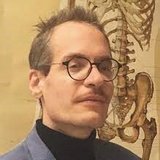
Pascal Baltzer, Assoc. Prof. Priv.-Doz. Dr.
Senior Supervisor N094 & N790Medical University of Vienna
Department of Biomedical Imaging and Image-guided Therapy
Unit of General Radiology and Paediatric Radiology
Währinger Gürtel 18-20
1090 Vienna, Austria

Thomas Bauer, Mag.rer.nat. PhD
Junior Supervisor N094Medical University of Vienna
Center for Cancer Research
Borschkegasse 8a
1090 Vienna, Austria
Research Interests
Epidermal growth factor receptor, skin inflammation, skin cancer, tumor-immune interaction, hair follicle stem cells, immune privilege.
Research Focus
The epidermal growth factor receptor (EGFR) is overexpressed in a variety of solid tumors rendering it a prominent target for anti-cancer therapy. The inhibition of EGFR, however, is accompanied by stigmatizing acneiform skin eruptions, bacterial infections and hair loss. These adverse events negatively influence targeted cancer therapy efficiency by provoking dose reduction and cessation from therapy.
We here investigate how the EGFR secures the hair follicle from microbial invasion, how the EGFR orchestrates stem cell activation and quiescence and how skin inflammation can influence cancer progression. We thereby aim to improve targeted cancer therapy efficiency, to identify EGFR mediated effects on cancer- and stem cells and to describe how the immune system influences cancer growth.
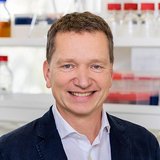
Walter Berger, Univ.-Prof. Mag. Dr. PhD
Senior Supervisor N094 & N790Medical University of Vienna
Center for Cancer Research
Borschkegasse 8a
1090 Vienna, Austria
Research Interests
Therapy resistance; novel anticancer drug targets; tumor-specific activation mechanisms for anticancer compounds; novel anticancer drug targets; fibroblast growth factor receptor/FGFR.
Research Focus
The majority of cancer deaths are caused by disseminated solid tumors exhibiting therapy resistance. Consequently, our translational and multidisciplinary cooperation projects focus on the development of novel therapeutic strategies in highly therapy-refractory cancers including lung cancer, mesothelioma, adult and childhood brain tumors and melanoma.
In cooperation with chemistry departments, novel anticancer compounds specifically activated in the cancer tissue are synthesized and (pre)clinically developed.
A specific focus lies on the fibroblast growth factor system and the respective receptors as an oncogenic factor and therapeutic target.

Anna Sophie Bergmeister-Berghoff, Assoc. Prof. Priv.-Doz. Dr.med.univ.et scient.med.
Senior Supervisor N094 & N790Medical University of Vienna
Department of Medicine I
Division of Oncology
Währinger Gürtel 18-20
1090 Vienna, Austria
Research Interests
Personalized Medicine, Immune-Oncology, CNS tumors, biomarker development.
Research Focus
Immunological factors in cancer progression, Biomarker development for personalized immunotherapy approaches, characterization of the inflammatory microenvironment.

Christoph Bock, Univ.-Prof. Dr. PhD
Senior Supervisor N094 & N790Medical University of Vienna
Center for Medical Statistics, Informatics and Intelligent Systems
Institute of Artificial Intelligence
Währinger Straße 25a
1090 Vienna, Austria
Research Interests
Medical Epigenomics, Bioinformatics, Machine Learning & Artificial Intelligence, Single-cell Sequencing, Cancer & Immunology, CRISPR Technology.
Research Focus
We seek to advance biology and biomedicine through technology-driven research, by combining experimental biology with computational methods in the areas of cancer, immunology, and precision medicine.
Our scientific vision is to understand how epigenetic regulation reflects the cells’ past and controls their future potential, with the perspective of rationally programming cells for therapeutic applications.
We are an ambitious and diverse team of experimental and computational researchers who combine wet-lab biology, bioinformatic methods, and high-throughput technology — usually with a translational component and in collaboration with clinical researchers.

Kaan Boztug, Assoc.-Prof. Priv. Doz. Dr.med. MD
Senior Supervisor N094 & N790St. Anna Children’s Cancer Research Institute (CCRI)
Zimmermannplatz 10
1090 Vienna, Austria
T: +43 (0)1 40470-4080
kaan.boztug@meduniwien.ac.at
kaan.boztugccri.at
Research Interests
Inherited bone marrow failure syndromes (iBMFs), inborn errors of immunity (IEIs), autoimmunity and autoinflammation, targeted treatment approaches for pediatric leukemias and solid tumors.
Research Focus
We have a long-standing and strategic interest in investigating inborn errors of immunity with predominant cancer predisposition. As such, many of the known genetic lesions that patients bear, are at the intersection of immunodeficiency and cancer predisposition. In ongoing work, we are dissecting the interplay of dysregulated actin biology linking immune cell abnormalities and cancer predisposition, as well as specific defects associated with particular vulnerability to virus-driven pediatric cancers such as lymphomas.
Further, we have a scientific interest in deciphering the molecular basis of inherited bone marrow failure syndromes. For Diamond-Blackfan Anemia (DBA), we have successfully applied for funding of a larger-scale European Research Network that aims to identify novel types of ribosome disorders and understanding their molecular pathology (RiboEurope, funding obtained in 2019).
Providing tailored treatment for every cancer patient is currently one of the main challenges in oncology. To this end, several research groups at CCRI including ours, are currently joining forces to implement structures for definition of targeted therapy options for selected tumor entities.

Heimo Breiteneder, Univ.-Prof. Dr.
Senior Supervisor N094Medical University of Vienna
Division of Medical Biotechnology
Institute of Pathophysiology and Allergy Research
Waehringer Guertel 18-20
1090 Vienna, Austria
Research Interests
Melanoma, tumor microenvironment, hypoxia, CSPG4, MAP-kinase pathway, hypoxia-inducible factor (HIF) pathway.
Research Focus
The serine/threonine-protein kinase BRAF is involved in transducing signals inside cells which direct cell growth. Oncogenic mutations in BRAF are present in nearly 50% of cutaneous melanoma tumors. Hence, BRAF represents an important target in the treatment of melanoma. Numerous inhibitors of BRAF and its downstream targets, including MEK and ERK, have been developed and have shown variable preclinical and clinical benefit. However, the vast majority of patients treated with these kinase inhibitors will – after initial tumor regression - develop disease progression within several months. The mechanisms of both intrinsic and acquired resistance are still not fully understood. Solid tumors such as melanoma include areas with low oxygen levels due to excessive cell proliferation. Adaptation to low oxygen levels is mediated by the hypoxia-inducible factor (HIF) pathway which promotes invasion, metastasis, metabolic alterations, chemo-resistance and angiogenesis.
The human chondroitin sulfate proteoglycan 4 (CSPG4) is a cell surface type I transmembrane protein that is covalently modified with CS glycosaminoglycans. CSPG4 most likely plays a central role in linking multiple oncogenic pathways required for malignant progression and is a central factor in controlling the impact of the microenvironment in melanoma progression.
We investigate the influence of hypoxia and the role of CSPG4 in the response to kinase inhibitors in preclinical melanoma models and in melanoma patient samples and develop novel, antibody-based strategies to treat therapy-resistant melanoma.

Christine Brostjan, Ao.Univ.-Prof. Dr.
Senior Supervisor N094 & N790Medical University of Vienna
Department of General Surgery
Division of Vascular Surgery
Anna Spiegel Center of Translational Research
Lazarettgasse 14, AKH 25.05.002
1090 Vienna, Austria
Research Interests
Colorectal carcinoma, cancer immunology, monocyte subsets in tumor biology and resistance to cancer therapy, vascular biology, biomarkers.
Research Focus
Colorectal carcinoma (CRC) is among the leading causes of death worldwide and novel treatment approaches are attempting to boost the immune response against tumor cells. Our previous studies showed a significant increase in a particular set of immune cells, the so-called "intermediate monocytes", in blood of colorectal cancer patients under chemotherapy which correlated with treatment success. We thus investigate whether intermediate monocytes (and possibly other subsets of monocytes) have essential functions in tumor growth and treatment efficacy and therefore constitute a therapeutic target.
Current experiments are focused on adoptive transfer of monocyte subsets in a humanized mouse model of colorectal cancer which offers the possibility to investigate the human myeloid cell populations with respect to their impact on CRC growth, metastasis and response to chemotherapy. In addition, clinical blood and tissue samples are retrieved from CRC patients and analyzed in comparison to the mouse models.
The results are expected to provide novel insights into monocyte changes induced by tumor growth and anticancer therapy, to identify targets to promote CRC treatment response and to possibly yield prognostic or predictive biomarkers.

Dan Cacsire Castillo-Tong, Ao.Univ.-Prof. Dr.
Senior Supervisor N094 & N790Medical University of Vienna
Department of Obstetrics and Gynecology
Translational Gynecology
Währinger Gürtel 18-20
1090 Vienna, Austria
T: +43 (0)1 40400-78330
dan.cacsire-castillo@meduniwien.ac.at
Research Interests
Ovarian cancer, molecular characterization, genetics, transcriptome profiling, experimental models, tumor recurrence, therapeutic targets.
Research Focus
Ovarian cancer is often diagnosed at late stage and the patients will be operated and treated with carboplatin-based chemotherapy. Even though most of them have response of the first line therapy, in many cases tumors will recur in a short period of time and the patients will die of the disease progression. The 5-year survival is below 35%. Efficient and specific targeted therapies are urgently needed to improve the treatment.
We successfully established patient-derived cell lines and analyzed them at genetic and molecular biological level. We found that almost all high grade serous ovarian cancers (HGSOC) lost the wild type p53 and thus had no or very low expression of the p21. Thus the cell cycle control is lost and the disease progresses along with the cell proliferation.
We also found that patients with quickly proliferating cells had rather shorter disease free interval than those with slowly proliferating cells. The Get Set Enrichment Analysis of the transcriptional profiling revealed that DNA replication was the major over-expressed pathway in quickly proliferating cells. By blocking the key molecules such as PRIM1 and POLA1with siRNA, the cell proliferation could be slowed down. In addition, we also find that a tumor specific antigen, the PRAME is highly expressed in HGSOC and had no expression in normal cells. Further therapeutic approaches targeting PRAME are intended.
Furthermore, we are interested in mucinous epithelial ovarian cancer, which has frequent KRAS mutations. We have initiated a project aiming at performing transcriptional profiling on enriched tumor cells from ascites of the patients and eventually defining novel therapeutic targets.
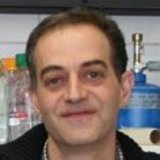
Emilio Casanova, Univ.-Prof. Dr.
Senior Supervisor N094Medical University of Vienna
Center for Physiology and Pharmacology
Institute of Pharmacology
Währinger Str. 13a
1090 Vienna, Austria
Research Interests
Lung Cancer, KRAS, EGFR, Targeted and immune-based therapies.
Research Focus
Research goal:
Unravel the contribution of key cellular signaling pathways to lung tumorigenesis.
Research tools:
Genetically modified mice modeling human lung cancer, genetically manipulated human and mouse lung cancer cell lines, tumor transplant models and human tumor samples.
Research topic:
Lung cancer is the most frequent cancer with an aggressive clinical course and high mortality rates.
Most cases are diagnosed at advanced stages when treatment options are limited and the efficacy of chemotherapy is poor. The disease has a complex and heterogeneous background with non-small-cell lung cancer (NSCLC) accounting for 85% of patients and lung adenocarcinoma being the most common histological subtype. Almost 30% of adenocarcinomas of the lung are driven by an activating Kirsten rat sarcoma viral oncogene homolog (KRAS) mutation.
The ability to inhibit the oncogenic KRAS has been the holy grail of cancer research and the search for inhibitors is immensely ongoing as KRAS-mutated tumors are among the most aggressive and refractory to treatment.
We are interested in therapeutic strategies tailored for KRAS driven NSCLC relying on the blockage of KRAS functional output, cellular dependencies, metabolic features and immunotherapy.
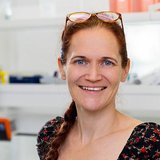
Agnes Csiszar, Dr.rer.nat.
Junior Supervisor N094Medical University of Vienna
Center for Cancer Research
Borschkegasse 8a
1090 Vienna, Austria
Research Interests
Breast cancer, squamous cell carcinoma (SCC), cellular and murine models of breast cancer and SCC, cancer metastasis, evolution of therapy resistance, drug tolerant persister cells (DTP), tumor microenvironment, growth factors and cytokines, signal transduction, epithelial-to-mesenchymal transition (EMT), pathological and physiological functions of ILEI/FAM3C.
Research Focus
Metastasis of carcinomas is the primary reason of cancer-associated death.
Although detection of macroscopic metastases is a late event, dissemination of tumor cells from the primary lesion occurs already at early phases of the disease.
Initially, at early stage, most tumors do respond to therapeutic treatments, but they eventually become refractory towards therapy.
Therapy resistance is linked to a rare population of drug tolerant persister cells (DTPs) that survive treatment via transient drug-induced changes until stable drug resistance emerges.
These processes are mostly studied on primary tumors, but how drug-adaptation influences tumor cell spreading from the primary site is less known. It is similarly not understood, how disseminated cells being frequently dormant for long time periods evolve during drug treatment. These questions are the focus of our research.
In addition, we have strong background in growth factor signaling and molecular mechanisms of metastasis, with focus on EMT and ILEI/FAM3C, an important cytokine of the metastatic secretome. There is growing evidence that mechanisms involved in metastasis, e.g. EMT, play also decisive role in the evolution of drug resistance. Driven by these observations and own data, we investigate the molecular function and therapeutic role of ILEI/FAM3C in metastasis, drug tolerance and resistance.

Martin Distel, Dr. PhD
Junior Supervisor N094 & N790St. Anna Children’s Cancer Research Institute (CCRI)
Zimmermannplatz 10
1090 Vienna, Austria
Research Interests
Cancer modeling in zebrafish, xenotransplantation in zebrafish larvae, drug screening, live imaging, multimodal imaging, optogenetics.
Research Focus
We are using zebrafish to model pediatric cancer as this model allows for live imaging of tumor cell behavior and easy compound screening.
We are applying these zebrafish cancer models to decipher molecular mechanisms underlying tumorigenesis and to identify new therapeutic strategies.
Recently, we have established an automated drug screening platform (Zebrafish platform Austria for preclinical drug screening “ZANDR”), which enables us to test small compounds on genetic zebrafish cancer models as well as on zebrafish larvae xenografted with human cancer cells at high-throughput. Here, we have been successful to identify drug combinations effective in Ewing sarcoma xenografts.
Furthermore, we are interested in the role of innate immune cells in tumorigenesis and how they could be reprogrammed to fight cancer cells.

Helmut Dolznig, Assoc. Prof. Priv.-Doz. Mag. Dr.
Senior Supervisor N094 & N790Medical University of Vienna
Centre for Pathobiochemistry and Genetics
Institute of Medical Genetics
Währinger Gürtel 18-20
1090 Vienna, Austria
Research Interests
Colon cancer, pancreas cancer, tumor stroma, cancer associated fibroblasts, tumor stroma interaction, cell signaling, immune cells in cancer.
Research Focus
The majority of human tumors are carcinomas (~90%), which develop from epithelial cells by accumulation of mutations, and account for the majority of cancer deaths per year. In carcinomas epithelial structures are always interwoven with fibroblasts, endothelial cells, pericytes and inflammatory cells. These mesenchymal cells constitute the so-called tumor stroma.
There is strong evidence for beneficial stromal influence on tumor development from experimental models. How the tumor stroma is involved in cancer initiation, invasion and metastasis is extensively studied, but so far less clear. Determining the stromal impact on tumor cells, and the reciprocal influence of malignant epithelial cells on the stroma at the molecular level will help to better understand cancer development.
We are specifically interested in the crosstalk between tumor cells, cancer associated fibroblasts (CAFs) and immune cells and put our focus on colon cancer to determine novel molecular mechanisms in the crosstalk between these cell types.
We developed state of the art three-dimensional co-culture models using matched organoids and primary stromal cell cultures from patient material, which recapitulate many aspects of carcinomas in vivo. In these models we study the functional consequences of tumor–stromal cell crosstalk and its implications for malignancy and for stromal drug targeting as well as in therapy resistance.

Gerda Egger, Univ.-Prof. Mag. Dr.
Senior Supervisor N094 & N790Medical University of Vienna
Department of Pathology
Währinger Gürtel 18-20
1090 Vienna, Austria
Research Interests
Epigenetics, DNA methylation, chromatin, tumor biology, organoid culture, tumor microenvironment, medical epigenomics, epigenetic biomarkers, liquid biopsy, immunometabolism.
Research Focus
Epigenetic alterations are a hallmark of human cancer and are implicated in all stages of tumorigenesis. We aim to understand the causality of epigenetic aberrations in cancer, how epigenetic signatures are generated and how they can be reversed and remodeled.
We are interested to study basic epigenetic mechanisms as well as clinical applicability of epigenetic therapy or epigenetic biomarkers.
We focus on different tumor entities and use preclinical models including transgenic mouse models, primary cell lines and patient-derived organoid models.
In various projects we study the effects of epigenetic enzymes for tumor development, the role of epigenetics for EMT and drug resistance, epigenetic factors important for tumor-stroma crosstalk or metabolic effects on epigenetic reprogramming.
In collaboration with clinical partners and transdisciplinary scientists we aim to develop epigenetic biomarkers for non-invasive testing in liquid biopsies to translate our findings into clinical practice.
Our lab has a strong expertise on -omics approaches, bioinformatics, advanced tissue culture and biomarker discovery.
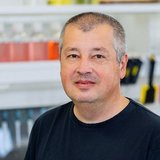
Robert Eferl, Assoc. Prof. Priv.-Doz. Mag. Dr.
Senior Supervisor N094 & N790Medical University of Vienna
Center for Cancer Research
Borschkegasse 8a
1090 Vienna, Austria
Research Interests
Colorectal cancer, oncoimmunology, tumor-stroma interaction, tumor-associated macrophages, JAK-STAT signaling, Tyk2, colitis, intestinal barrier function, protocadherins, CDHR5.
Research Focus
We are interested in cancer cell-intrinsic and hematopoietic functions of the Janus kinase Tyk2 in the development and metastasis of colorectal cancer. Our experimental approaches are chemical protocols for the induction of colitis-associated colorectal cancer in Tyk2 knock-out mice, mice with conditional deletion of Tyk2 in the intestinal epithelium or the hematopoietic system and injection of CRISPR/Cas9-engineered, Tyk2-deficient colorectal cancer organoids into the spleen (model for liver metastases in colon cancer).
Colitis is a major risk factor for colon cancer and is often associated with defects in the intestinal barrier. We are therefore investigating epithelial mechanisms that lead to barrier defects. Here we focus on the role of the intestinal brush border (microvilli) in maintaining the intestinal barrier.

Isabella Ellinger, Ao.Univ.-Prof. Dipl.-Ing. Dr.
Senior Supervisor N094 & N790Medical University of Vienna
Center for Pathophysiology, Infectiology & Immunology
Institute for Pathophysiology and Allergy Research
Währinger Gürtel 18-20
1090 Vienna, Austria
Research Interests
Studying placental functions under physiologic and pathologic conditions Advancing automated microscopy.
Research Focus
I feel joined with the UN sustainable development goals (SDGs), specifically goal 3 which claims to “ensure healthy lives and promote well-being for all at all ages“ with one focus on reproductive, maternal, newborn and child health.
In line with this, one major aspect of my research deals with the understanding of placental functions. The placenta tries to guarantee proper fetal development and is thus very important for the development of the adult phenotype of the offspring. It exhibits plasticity and can adopt when facing an adverse environment such as maternal under- and over-nutrition or exposure to drugs or environmental pollutants.
However, when the placental capacity for adaption is exceeded, the regular function of the placenta is disturbed and/or the placenta does not develop properly, then the foetus becomes affected, which subsequently can impact on the life-long health of the foetus. This concept is known as fetal programming of diseases.
Considering some of the major health problems of today including under-nutrition on one hand and increasing obesity rates on the other hand as well as the many environmental pollutants known today, I consider deciphering physiologic and pathophysiologic functions of the placenta as extremely relevant for our future health and thus this research area will remain an important topic of my future work.
Another focus of goal 3 is to achieve universal access to essential health care services.
Histopathological image analysis is required for diagnosis of malignant lesions. But even for experienced pathologists the diagnosis process is not trivial.
Diagnostic concordance between specialists is on average only 75%. Moreover, there is a lack of pathologists in many parts of the world. These limitations motivate the development of Computer-Aided Diagnosis (CAD) systems based on automated image analysis algorithms.
Being a second opinion system, CAD systems shall reduce the workload of specialists, improve the diagnosis efficiency, and contribute to cost reduction.
In addition, automated image analysis is a big data analysis tool that is of high interest for biomedical researchers.
I am interested in using and further developing automated image analysis in ongoing and future collaborative research projects with the ultimate aim to identify new biomarkers, better understand specific diseases and advance personalized medicine.

Bernhard Englinger, PhD
Junior Supervisor N094Medical University of Vienna
Department of Urology and Center for Cancer Research
Währingergürtel 18-20
1090 Vienna, Austria
Research Interests
Urothelial carcinoma, bladder cancer, experimental cancer research, molecular mechanisms defining aggressiveness/invasiveness, identification of novel therapeutic targets, establishment and characterization of patient-derived preclinical models, molecular therapy resistance mechanisms, characterization of novel therapeutic strategies with enhanced specificity and reduced side effects.
Research Focus
Bladder cancer is amongst the most common cancer types worldwide. The clinical benefit of systemic chemotherapy with respect to disease recurrence probability and patient outcome is very limited, especially in the context of advanced-stage, muscle-invasive/metastatic disease.
There is an urgent need for novel, more efficacious treatments.
Our goal is to elucidate molecular driver mechanisms and novel therapeutic vulnerabilities of bladder cancer, to enable more efficient diagnosis, prognosis, and therapy. By applying a spectrum of cell/molecular biological, genetic, and computational tools, we lay specific focus on
- analysis of molecular mechanisms contributing to the initiation and progression of malignancies of the urinary bladder
- establishment of patient-derived, disease-relevant, preclinical models
- definition of prognostic and predictive markers,
- preclinical identification of novel therapeutic strategies, and
- development of tumor-targeted therapeutic strategies with reduced side effects.

Boban M. Erovic, Priv.-Doz. Dr. MBA
Senior Supervisor N094 & N790Evangelical Hospital Vienna
Institute of Head and Neck Diseases
Hans-Sachs Gasse 10-12
1180 Vienna, Austria
Research Interests
Microvascular reconstruction, predictive/prognostic factors and target proteins in Merkelcell carcinoma and squamous cell carcinoma of the head and neck, clinical outcome research.
Research Focus
- Oncological ENT ablative surgery and outcome research
- Definition of new diagnostic and therapeutic algorithms for advanced tumors of the head and neck region
- Initiation of clinical studies by determining new predictive/prognostic/target molecules
- ENT reconstructive surgery
- Define new microvascular flap techniques and bring them to the clinic

Irfete Fetahu, MPharm, MBA, PhD
Junior Supervisor N094Medical University Vienna
Department of Neurology
Division of Neuropathology and Neurochemistry
Währinger Gürtel 18 - 20
1090 Vienna, Austria
T: +43 (0)1 40400-55965
irfete.fetahu@meduniwien.ac.at
LinkedIn
Research Interests
Pediatric and adult cancers, neurodegeneration, epigenomics, stem cell-derived models, liquid biopsy-based epigenetic markers, single cell technologies, tumor microenvironment, bioinformatics.
Research Focus
We seek to better understand the epigenetic mechanisms involved in pediatric and adult malignancies by combining an array of high-throughput wet-lab experimental approaches with computational methods. The resulting information is subsequently harnessed to define diagnostic and druggable targets in patients.
We employ state-of-the-art technologies that allow for mapping and deciphering of the changes in chromatin accessibility, DNA methylation, transcriptome, and proteome to investigate:
- Crosstalk between genetic and epigenetic components in normal and diseased cells.
- Epigenetic heterogeneity and the resulting cellular plasticity in aiding drug development and generating new treatment avenues.
- Use of epigenetic biomarkers for disease diagnosis and ‘real-time’ disease monitoring.

Martin Filipits, Assoc. Prof. Univ.-Doz. Mag. Dr.
Senior Supervisor N094 & N790Medical University of Vienna
Center for Cancer Research
Borschkegasse 8a
1090 Vienna, Austria
Research Interests
Translational research, biomarkers, breast cancer, non-small cell lung cancer.
Research Focus
Characterization of molecular biomarkers which help to predict therapy response in cancer patients. These biomarkers should allow a more rational use of existing therapies, help to identify new targets in the therapy of malignant diseases or to increase the knowledge for better therapeutic concepts and ultimately improve outcome of cancer patients. To achieve this goal, we analyze tumor tissue of cancer patients for the expression of various proteins or genetic changes.

Lisa Gabler, PhD
Junior Supervisor N094Medical University Vienna
Department of Neurosurgery
Währinger Gürtel 18 - 20
1090 Vienna, Austria
I am a molecular biologist specializing in brain cancer research. I studied Biomedical Sciences at the University of Applied Sciences, Genetics and Molecular Immunobiology at the University of Vienna, and earned my Ph.D. at the Medical University of Vienna, focusing on biomarkers and targeted therapies for high-risk brain cancers. After completing my doctorate, I conducted my postdoctoral research at the Dana-Farber Cancer Institute in Boston, USA, affiliated with the Harvard Medical School and the Broad Institute of MiT and Harvard. During my postdoc, I concentrated on computational science and precision medicine for brain cancers. Funded by the Austrian Science Fund, the Austrian Academy of Science, and the Fund of the City of Vienna for Innovative Interdisciplinary Cancer Research, I returned to Austria in July 2023. As Senior Postdoc at the Department of Neurosurgery I am tasked with leading several research projects as outlined below and guiding Bachelor’s, Master’s, and PhD students in the field of biomedical sciences.
Research Interests
My research interests lie in unraveling the intricate molecular landscape underlying brain cancers with a keen focus on identifying novel therapeutic targets and treatment modalities to enhance patient outcomes. Employing a multifaceted approach, we integrate cutting-edge methodologies such as (single-cell) RNA sequencing, DNA methylation profiles, wet laboratory experimentation utilizing cell and mouse models, as well as the analysis of patient tumor tissues. Through this comprehensive investigative framework, our overarching objective is to pioneer the discovery of more efficacious and targeted therapies tailored to the complex heterogeneity of brain cancer, ultimately striving to advance the standard of care for afflicted individuals.
Research Focus
Our current research endeavors are centered on investigating cell-cell communication networks within tumors characterized by high intratumoral heterogeneity and between tumors and the non-malignant brain. Leveraging single-cell RNA sequencing, spatial transcriptomics/protein profiling, and innovative wet lab techniques, we aim to unravel the dynamic interplay between tumor cells and their microenvironment.
Another facet of our research involves delving into the mechanisms underpinning the development of resistance to targeted therapies in brain cancers. A primary focus is on elucidating the intricate pathways leading to resistance and identifying alternative vulnerabilities within resistant tumors. Utilizing resistant cell models, our investigations encompass comprehensive -omics analyses and high-throughput drug screening methodologies. Validated candidates are rigorously assessed through laboratory experimentation and in vivo studies utilizing tumor-bearing mice.
Additionally, we are dedicated to deciphering the developmental origins of rare pediatric brain cancers through introducing tumor oncogenes into stem cells and brain organoids. Tracking the malignant transformation process and observing clonal dynamics allows for a deeper understanding of the early events driving tumorigenesis in these rare malignancies.

Christoph Gasche, Ao.Univ.-Prof. Dr.med.univ.
Senior Supervisor N094 & N790Medical University of Vienna
Department of Medicine III
Division of Gastroenterology and Hepatolgy
Laboratory for Molecular Gastroenterology
Währinger Gürtel 18-20
1090 Vienna, Austria
Research Interests
Colorectal cancer, Cancer prevention, Inflammation-driven cancer, Gut microbiota, Intestinal biofilms and IBS, Iron deficiency and thromboembolism.
Research Focus
Inflammatory Bowel disease (IBD) is caused by breakdown of intestinal homeostasis in a genetic susceptible host, via a complex interplay of environmental triggers (such as diet, smoking) and interactions between host and gut microbiota. Persistent mucosal injury and oxidative stress produced by chronic inflammation of gastrointestinal tract in IBD further modulates cellular signaling, leading to genetic instability and neoplasia. Moreover, disruption of epithelial barrier, dysregulated immune response and microbial dysbiosis alters molecular signaling in the stem cell niche of intestinal crypts.
Anti-inflammatory drug mesalamine (5-ASA) used in the treatment for IBD, also exhibits chemopreventive actions through signaling pathways; such as inhibition of Wnt/β-catenin, PAK1, PI3K/AKT/mTOR and MAP kinase or activation of PPAR-γ and anti-oxidant Nrf2, with pleotropic functions in inflammation and cancer.
Using PAK1KO and intestinal specific PAK1CKO mouse models, we are investigating the role of PAK1 signaling in microbial dysbiosis, intestinal inflammation and cancer.
Microbial dysbiosis contributes to pathophysiology of various conditions and we are examining the association and mechanism of biofilm formation in intestinal diseases; such as IBD, Irritable bowel Syndrome (IBS) and small intestinal bacterial overgrowth (SIBO).
Our research utilizes various mouse models of colorectal cancer and IBD (AOM/DSS, Apcmin, IL-10 KO, Msh2loxP/loxP Villin-Cre), intestinal organoids, human tissue samples, as well as variations in gut microbiota (16S rRNA sequencing, biofilm formation assays), to dissect out the pathomechanisms of intestinal inflammation, cancer and potential chemoprevention.

Dietmar Georg, Univ.-Prof. Dipl.-Ing. Dr.
Senior Supervisor N094 & N790Medical University of Vienna
Department of Radiation Oncology
Währinger Gürtel 18-20
1090 Vienna, Austria
Research Interests
Image guided radiotherapy, multiparametric imaging for tissue characterization, pre-clinical animal research in the context of radiation oncology, dose response modelling, proton and carbon ion therapy.
Research Focus
High precision radiation oncology aims to destroy the tumor without damaging normal tissue and organs. In order to achieve this delicate balance and to optimize treatment outcome in radiation oncology, following challenges are tackled in an interdisciplinary manner in clinical and pre-clinical medical radiation research. First beam qualities (photons, electrons, protons, carbon ions) are characterized applying physical and biological methods (cell lines, spheroid/organoids, animal models).
Next, we perform research to improve our understanding of dose response at the molecular, cellular and tissue level. When applying radiation in cancer care, the role of imaging has dramatically increased ("if you can’t see it you can’t treat it, if you can’t treat it you can’t cure it").
Therefore, we develop and bring technological innovations in medical imaging into the clinic. Besides anatomic imaging, multiparametric functional imaging has become an important non-invasive tool for tissue characterization prior treatment and for response assessment. Although hardware developments have an intrinsic role since the advent of radiation medicine, software plays an equal role today.
Data Scientists develop tools to automate processes in the treatment chain (e.g. tissue segmentation, automated treatment planning, biological optimization, tumor sub-volume analysis) or to improve tissue sparing via image guided synchronization of organ motion and beam delivery. These developments are mainly knowledge driven approaches and based on artificial intelligence.
More recently we have started to build up a large clinical database to extract outcome information from real world clinical data to prove and generate clinically driven hypothesis.

Christopher Gerner, Univ.-Prof. Dr. PhD
Senior Supervisor N094University of Vienna
Department of Microbiology and Ecosystem Science
Institute for Analytical Chemistry
Währinger Str. 38
1090 Vienna, Austria
Research Interests
Chronic inflammation, inflammatory signaling, tumor initiation and progression, metabolic control of immune cells, multi-omics analyses (proteomics, lipidomics, metabolomics)
Research Focus
Focusing on post-genomic techniques, we characterize disease mechanisms mainly governed by biochemical processes such as hypoxia, oxidative stress or metabolic starvation.
We have established a variety of methods supporting analysis of humans in vivo (e.g. metabolomics based on finger sweat analysis), analysis of human or animal model-derived materials (multi-omics), or investigating direct cellular effects on signaling via phospho-proteomics.
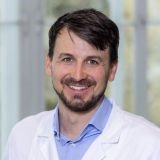
Johannes Gojo, Univ.-Prof. Dr.med.univ. Dr.scient.med.
Junior Supervisor N094; Senior Supervisor N790Medical University of Vienna
Department of Pediatrics and Adolescent Medicine
Unit of Neonatology, Paediatric Intensive Care Medicine and Neuropaediatrics
Währinger Gürtel 18-20
1090 Vienna, Austria
Research Interests
Pediatric Neuro-Oncology, Precision Medicine.
Research Focus
My research is directed to delivering precision medicine approaches to children suffering from tumors of the central nervous system (CNS).
A particular focus is the development of innovative tumor models for these rare diseases in order to allow detailed preclinical research. Therefore, my research interests range from deciphering the molecular mechanisms underlying the malignant phenotype of pediatric high-risk CNS tumors to development of novel biomarkers for disease monitoring such as liquid biopsies.
Current ongoing projects focus on various high-risk brain tumors including ependymoma, HGNET-BCOR, high-grade glioma and ETMR.
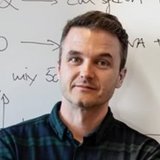
Florian Grebien, Univ.-Prof. Dr.rer.nat. PhD
Senior Supervisor N094University of Veterinary Medicine Vienna
Institute for Medical Biochemistry
Veterinärplatz 1
1210 Vienna, Austria
Research Interests
Molecular mechanisms of oncogenesis in fusion-protein driven Leukemia. Exploitation of novel technologies for functional analysis of cancer mutations. Epigenetic and transcriptional control of gene expression. Analysis of proteome dynamics. Bioinformatic data integration. Translation of findings from basic research to clinical application.
Research Focus
We use a multidisciplinary approach to dissect molecular mechanisms that underlie cancer development.
Cancer is caused by dysfunction of factors that are required to regulate normal development. Recent genomic studies have shown that cancer-driving oncoproteins often arise from mutations in genes that encode transcription factors and epigenetic modulators.
We believe that oncogenic mechanisms oncogenic fusion proteins are hard-wired in specific networks of physical, genetic and epigenetic interactions with key effector proteins. Functional exploration of these networks will provide new insights into cellular processes that depend on critical effector proteins of oncoproteins.
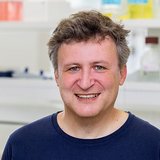
Michael Grusch, Assoc. Prof. Priv.-Doz. Mag. Dr.
Senior Supervisor N094 & N790Medical University of Vienna
Center for Cancer Research
Borschkegasse 8a
1090 Vienna, Austria
Research Interests
Malignant pleural mesothelioma, activin signaling, FGF/FGF-receptor signaling, biomarkers, therapeutic targets, mesothelioma-associated fibroblasts, epithelial to mesenchymal transition, Y-box binding protein 1.
Research Focus
Our research is focused on growth factors and their receptors in cancer development, therapy and drug resistance.
We aim to
(a) understand how growth factor signals contribute to malignancy
(b) translate this knowledge into strategies for therapeutic interventions and
(c) characterize mechanisms that determine sensitivity versus resistance of tumors to therapeutics interfering with growth factor signaling.

Christine Hafner, Priv.-Doz. Dr. MD
Junior Supervisor N094Karl Landsteiner University of Health
Department of Dermatology
Sciences Dunant-Platz 1
3100 St. Pölten, Austria
Research Interests
Melanoma, tumor microenvironment, hypoxia, CSPG4, MAP-kinase pathway, hypoxia-inducible factor (HIF) pathway, non-melanoma skin cancer.
Research Focus
Treatment for advanced melanoma has been revolutionized over the past decade. One root of this was the observation that oncogenic mutations in BRAF were present in nearly 50% of cutaneous melanoma tumors. The impact of this discovery identified a molecular target in melanoma.
Numerous inhibitors of BRAF and its downstream targets, including MEK and ERK, have been developed which have shown variable preclinical and clinical benefit. Unfortunately, the vast majority of patients treated with these kinase inhibitors will develop disease progression following a tumor regression within several months. The mechanisms of both intrinsic and acquired resistance are still not fully understood.
Solid tumors such as melanoma include hypoxic areas due to excessive cell proliferation. Adaptation to low oxygen levels is mediated by the hypoxia-inducible factor (HIF) pathway promoting invasion, metastasis, metabolic alterations, chemo-resistance and angiogenesis.
The human chondroitin sulfate proteoglycan 4 (CSPG4) is a cell surface type I transmembrane protein that is covalently modified with CS glycosaminoglycans. This proteoglycan displays unique and complex mechanisms associated with its signaling function, indicating that it most likely plays a central role in linking multiple oncogenic pathways required for malignant progression and is a central factor in controlling the consequences of the microenvironment on melanoma progression.
We investigate the influence of hypoxia and the role of CSPG4 on the response to kinase inhibitors in preclinical melanoma models and melanoma patient samples and develop novel, antibody-based strategies for interventions in therapy-resistant melanoma.

Florian Halbritter, Dr. PhD
Junior Supervisor N094St. Anna Children’s Cancer Research Institute (CCRI)
Zimmermannplatz 10
1090 Vienna, Austria
Research Interests
Pediatric cancer, developmental biology, genomics, bioinformatics.
Research Focus
Cancer is a disastrous growth of cells in the body. In the most common types of cancer, this growth is brought on by a series of many mutations – accumulated throughout life and possibly influence by extrinsic factors.
Childhood cancers are different.
In young age, cells have not usually attained many mutations yet, but rather there are individual catastrophic events that occur in undifferentiated cells during the orderly growth of the organism. These singular mutations throw developing cells of their designated path and result in malignancies.
However, for most pediatric cancers, the exact histogenesis is not fully understood. Insight into how mutations affect development will ultimately elucidate new avenues for detecting (diagnosis), projecting (prognosis), and interfering (therapy) with aberrant development in childhood cancers.
We are a team of computational biologists approaching childhood cancer development with a scientist’s curiosity in three facets:
- Developmental biology: We chart cellular plasticity in tumors and trace it back to normal development in time and space;
- Regulatory epigenomics: We map the regulatory networks that shape cell identity and identify they role of key regulators;
- Integrative analysis: We develop and apply computational tools that connect pieces of data into knowledge.
Our research combines analysis of clinical samples as well as in vitro and in vivo models with computational, statistical, and machine learning methods to dissect the molecular framework of pediatric cancers. To this end, we apply and develop high-throughput functional genomics technologies (single-cell RNA-seq, ATAC-seq, ChIP-seq, RRBS/WGBS, lineage tracing) and often work in close collaboration with experimental and clinical scientists in the institute and worldwide.
There are three aspects of development that are currently at the heart of our interest: Intra-tumor plasticity, the influence of non-tumor cells on plasticity, and the impact of chromatin state on the receptiveness of cells for developmental changes. We study these using primarily pediatric sarcomas, blastomas, and leukemia as model systems.

Petra Heffeter, Univ.-Prof. Mag. Dr. MAS
Senior Supervisor N094Medical University of Vienna
Center for Cancer Research
Borschkegasse 8a
1090 Vienna, Austria
Research Interests
Anticancer therapy, Mode of action studies, Drug resistance, Tumor-targeting strategies, Metal (platinum) drugs, Thiosemicarbazones, EGFR inhibitors.
Research Focus
The aim of my group is to investigate the reasons underlying chemoresistance or –sensitivity of cancer cells to new but also already clinically established therapeutics. Here especially metal-based therapeutics such as platinum drugs, or thiosemicarbazones and tyrosine kinase inhibitors (e.g. against the epidermal growth factor receptor) are in our research focus.
Our improved understanding is in turn used to develop novel strategies to improve therapy efficacy. This on the one hand, includes discovery of new drug combinations and, on the other hand, the design of new drug (derivatives) together with our very close cooperation partner Christian Kowol from the Institute of Inorganic Chemistry at the university of Vienna. Together, we have already developed several very promising prodrugs during the last years. The most promising one, which uses the enhanced albumin consumption of cancer cells for the tumor targeting of platinum drugs is now pre-clinically developed towards first-in-man clinical phase I trials.

Gregor Heiduschka, Assoc. Prof. Priv.-Doz. Dr.med.univ.
Senior Supervisor N094 & N790Medical University of Vienna
Department of Otolaryngology
Head & Neck Surgery
Währinger Gürtel 18-20
1090 Vienna, Austria
Research Interests
Head and neck cancer, squamous cell carcinoma, salivary gland carcinoma, organoids/tumoroids, personalised medicine, tumour biology, prognostic markers, therapeutic targets.
Research Focus
Despite novel therapeutic and diagnostic breakthroughs in cancer research, the prognosis of head and neck cancer patients remains poor. Better understanding of the tumour biology and identifying possible therapeutic targets remains a key interest.
In our research lab we assess novel therapeutic targets in head and neck squamous cell carcinoma and salivary gland tumours. Our focus lies both on established cell lines as well as primary cell culture as a step towards personalised medicine. Promising targets are further assessed in patient samples. Our research combines patient data / samples with basic lab techniques.

Dietmar Herndler-Brandstetter, Mag.pharm. PhD
Junior Supervisor N094Medical University of Vienna
Center for Cancer Research
Borschkegasse 8a
1090 Vienna, Austria
T: +43 (0)1 40160-57577
dietmar.herndler-brandstetter@meduniwien.ac.at
Research Interests
Tumor immunology, cancer immunotherapy, humanized mouse models for translational cancer research, colorectal cancer, stromal regulation of immune cell development and anti-tumor immunity.
Research Focus
Immunotherapies have revolutionized the treatment of cancers. However, complete and durable responses are still only observed in a small fraction of cancer patients.
We use novel humanized mouse models (immunodeficient mice reconstituted with a human immune system) and patient-derived tumor xenografts, which enable us to perform translational cancer research and study precision immunotherapy approaches, reveal mechanisms of resistance and identify new predictive biomarkers.
We have also developed reporter and conditional knockout mice to investigate the role of distinct subsets of stromal cells for immune cell development and the regulation of anti-tumor immunity.

Gregor Hoermann, Priv.-Doz. Dr. MD Phd
Senior Supervisor N094 & N790MLL Munich Leukemia Laboratory
Max-Lebsche-Platz 31
81377 Munich, Germany
Research Interests
Laboratory diagnostics, genetic diagnostics, hematologic malignancies, leukemia, myelodysplastic syndromes, myeloproliferative neoplasms, mastocytosis, clonal hematopoiesis, cytokines.
Research Focus
Diagnosis, prognosis, and treatment monitoring of hematologic malignancies relies on the integration of laboratory diagnostics and genetic analyses. We aim to identify novel biomarkers in leukemia, myelodysplastic syndromes, myeloproliferative neoplasms, and mastocytosis, to investigate their pathogenetic relevance, and to exploit their utility to improve diagnostic procedures.
A particular focus of our work is the role of cytokines and genetic factors in mast cell neoplasms. Systemic mastocytosis is hematopoietic stem cell neoplasm characterized by the infiltration of aberrant mast cells in the bone marrow or other organs. The majority of patients harbor the somatic KIT D816V mutation that leads to a constitutive activation of the KIT tyrosine kinase and associated downstream signaling pathways. Cytokines and other mast cell mediators secreted by the neoplastic cells contribute to the pathogenesis of the disease and the symptoms observed in the patients.
By investigating aberrant signaling in mast cells and modifying genetic factors using in vitro and in vivo models as well as primary patient samples, we identify biomarkers as potential therapeutic targets and/or diagnostic markers in mastocytosis. Results are cross-validated in models and patient samples of other myeloid neoplasms.
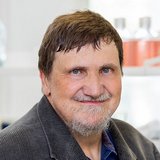
Wolfgang Huber, Ao.Univ.-Prof. Dr.
Senior Supervisor N094 & N790Medical University of Vienna
Center for Cancer Research
Borschkegasse 8a
1090 Vienna, Austria
Research Interests
Toxicology, chemical carcinogenesis, cancer prevention, oxidative stress, xenobiotic metabolism, liver and intestine.
Research Focus
Investigation of effects of potential chemoprotectants, such as coffee components, on oxidative stress and enzymes of xenobiotic metabolism. Oxidative stress may be a causative factor in the carcinogenic process at several levels, e.g. genotoxicity/tumor initiation or tumor promotion.
For instance, oxidative stress through the consumption of oxidized fat appears to play a role in the onset of non-alcoholic steatohepatitis, a pre-condition of hepatocarcinogenesis of increasing importance, particularly in case of over-nutrition. Enzymes of xenobiotic metabolism are involved in the activation and detoxification of many important carcinogens since most genotoxic carcinogens even require metabolic activation to exert their effect. Discovery of beneficial modifications of these mechanisms, e.g. by antioxidants or enzyme inducers/inhibitors, may ultimately lead to a reduction in cancer risk.

Renate Kain, Univ.-Prof. Dr.med.univ. PhD
Senior Supervisor N094 & N790Medical University of Vienna
Department of Pathology
Währinger Gürtel 18-20
1090 Vienna, Austria
T: +43 (0)1 40400-36500 or 36505
renate.kain@meduniwien.ac.at
Research Interests
Immunology, molecular mechanisms of autoimmunity, lysosomal membrane-associated protein 2, cell-cell communication, extracellular vesicles, matrix biology, chronic inflammation.
Research Focus
Originating from work investigating the mechanisms of autoimmunity in renal disease and endothelial cell biology, the research interest of our group extends to molecular mechanisms of immunity and immune evasion more generally.
We investigate the composition of the immune cell infiltrate in inflammatory diseases and malignant neoplasias using classical histopathology, immuno-histochemistry, genomics and transcriptomics. By characterizing infiltrating immune cells and tumor cells we aim to elucidate how tumor cells evade the immune response.
We investigate the interaction tumor cells and the immune cell infiltrate with the extracellular matrix in non-neoplastic pathologies (chronic inflammation) and in malignant neoplasias and their role on processes that determine deposition of ECM, like progressive scarring. By studying extracellular vesicles from body fluids we explore their role as biomarkers and how they contribute to cellular communication.

Enikő Kallay, Priv.-Doz. Mag. Dr.
Senior Supervisor N094 & N790Medical University of Vienna
Center of Pathophysiology, Infectiology & Immunology
Institute of Pathophysiology and Allergy Research
Währinger Gürtel 18-20
1090 Vienna, Austria
Research Interests
Colorectal cancer, ovarian cancer, intestinal inflammation, vitamin D, calcium, extracellular calcium-sensing receptor, cell signalling, epigenetics; mouse models.
Research Focus
To understand and unveil biochemical and molecular mechanisms of the anti-tumourigenic and anti- inflammatory effects of vitamin D and dietary calcium in colon and ovarian cancer.
To study the role of the calcium sensing receptor (CaSR) in intestinal inflammation and colon carcinogenesis.
To study the role of vitamin D in intestinal inflammation and colon carcinogenesis.
Genetic and epigenetic investigation of the vitamin D system as physiological defence against colon and ovarian tumour progression.
We study the role of the vitamin D receptor and its ligand, 1,25 dihydroxyvitamin D3 (1,25D3), and the most important enzymes involved in synthesis and catabolism of 1,25D3, the 25-hydroxyvitamin D-1α-hydroxylase (CYP27B1) and the 25-hydroxyvitamin D- 24 hydroxylase (CYP24A1) in the normal and neoplastic colon.
We test different synthetic analogues of 1,25D3 in ovarian cancer cells and mouse models, to find highly anti-tumourigenic compounds with low calcaemic side effects.

Harald Kittler, Ao.Univ.-Prof. Dr.med.univ.
Senior Supervisor N094Medical University of Vienna
Department of Dermatology
Währinger Gürtel 18-20
1090 Vienna, Austria
Research Interests
Melanoma, melanocytic neoplasms, computational biology, simulation, in vivo skin imaging, image analysis, machine learning, artificial intelligence, dermatoscopy, confocal microscopy, dermatopathology.
Research Focus
The main focus of the Vienna Dermatologic Imaging Research group are in vivo skin imaging, artificial intelligence, machine learning, simulation, computational biology, and morphometry and morphogenesis.
- We use different techniques to generate static and dynamic images of the human skin in vivo such as dermatoscopy, confocal microscopy, optical coherence tomography, total body photography, and multimodal devices.
- We perform data-driven science and extract knowledge from structured and unstructured data from image and text data.
- We use artificial intelligence and machine learning to diagnose skin diseases.
- We have collaboration with many research groups worldwide including dermatology and computer science labs.
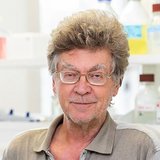
Siegfried Knasmüller, Ao.Univ.-Prof.i.R. Mag. Dr.
Senior Supervisor N094 & N790Medical University of Vienna
Center for Cancer Research
Borschkegasse 8a
1090 Vienna, Austria
T: +43 (0)1 40160-57562
siegfried.knasmueller@meduniwien.ac.at

Martin Knöfler, Ao.Univ.-Prof. Mag. Dr.
Senior Supervisor N094 & N790Medical University of Vienna
Department of Obstetrics and Gynaecology
Reproductive Biology Unit
Währinger Gürtel 18-20
1090 Vienna, Austria
Research Interests
Reproductive Biology, human placental development and differentiation, developmental signaling pathways (Wnt, Notch, Hippo, TGF-β signaling), primary trophoblast function and differentiation, key regulatory transcription factors in the placenta, endometrial development and differentiation, decidualization, fetal-maternal crosstalk in the pregnant uterus, reproductive diseases (preeclampsia, fetal growth restriction), trophoblast organoids, trophoblast stem cell expansion and differentiation .
Research Focus
Martin Knöfler is biochemist and Associate Professor at the Department of Obstetrics and Gynaecology, Medical University of Vienna, Austria. He is principal investigator and scientific coordinator of the Reproductive Biology Unit of the department and the current European Editor of the scientific journal Placenta.
His research interests include molecular mechanisms, signalling pathways and key regulatory factors controlling human placental development, trophoblast stem cells expansion and formation and differentiation of human trophoblast subtypes.
Moreover, his team aims unravelling critical steps of endometrial evolution, decidualization, the trophoblast-decidual cross-talk as well as placental pathologies with abnormal trophoblast function. The group of Martin Knöfler was the first establishing 3-dimensional trophoblast organoids from the human placenta.
His investigations resulted in over 130 published articles including peer-reviewed manuscripts, book chapters and invited reviews.

Eva Maria König, Mag. Dr.
Junior Supervisor N094St. Anna Children’s Cancer Research Institute (CCRI)
Zimmermannplatz 10
1090 Vienna, Austria
Research Interests
Tumor immunoediting, leukemia, tumor evasion, immune cells, natural killer cells, immune cell checkpoints, immunological synapse, signal transduction, STAT1 signaling, kinases, cellular barcoding, next-generation sequencing, protein-protein interactions, proteomics.
Research Focus
Tumor immunoediting allows a deeper understanding of the dual action of immune cells in cancer. Whereas most tumor cells are efficiently destroyed by an intact immune system, the constant immune pressure evokes tumor cell sculpting, which leads to immune escape.
In recent years, novel anti-cancer therapies have reached clinics and shown promising results. Natural killer (NK) cells are highly cytotoxic innate immune cells and the first-line of defense against leukemia. However, the lack of sustained therapeutic efficacy and the development of therapy resistance are still challenges we seek to overcome.
We aim to identify the molecular signature of NK cell-resistant tumor cell clones and ultimately find novel therapeutic targets to increase the immunogenicity of tumor cells. The combination of single-cell tracking by DNA barcoding, in vivo mouse models and next-generation sequencing will uncover novel mechanisms underlying tumor immune escape, which we believe to be of the utmost importance to find novel therapeutic targets that show sustained success.
Using a wide array of multi-omics approaches combined with a more specific analysis of signaling molecules in primary human and mouse immune cells and gene-targeted mouse models, we aim to find ways to improve NK cell functionality against cancer.

Heinrich Kovar, Univ.-Prof. Dr.
Junior Supervisor N094 & N790St. Anna Children’s Cancer Research Institute (CCRI)
Zimmermannplatz 10
1090 Vienna, Austria
Research Interests
Pediatric cancer, bone sarcoma, tumor cell plasticity, metastasis, Ewing sarcoma origin, 3D tumor models, aberrant oncogenic transcription factors, YAP/TAZ signaling, tumor/microenvironment interactions.
Research Focus
Ewing sarcoma, characterized by the expression of the chimeric ETS transcription factor EWS-FLI1, is the second most frequent bone cancer affecting primarily children and adolescents. The lack of knowledge of the tissue and developmental stage of tumor origin has so far prevented the generation of adequate pre-clinical models for this highly metastatic and frequently fatal disease. These are highly warranted to allow identification and prioritization of novel therapeutic compounds.
In search of targetable molecular pathways, our research therefore focuses on understanding the developmental context of Ewing sarcoma, and the mechanisms, by which EWS-FLI1 and its fluctuations drive disease pathogenesis and progression.
Our projects address the transforming activity of the fusion protein in vitro and in vivo, and the molecular pathways involved in tumor/microenvironment interactions supporting tumor spread and metastasis. To that end, we are applying cutting edge gene editing, high-throughput screening, bulk and single cell omics methods, 3D cell culture and organoid technologies. Comparing the results of our in vitro models to data derived from patient materials, we hope to identify new therapeutic targets and test novel approaches for the treatment of Ewing sarcoma and other pediatric solid tumors.

Manfred Lehner, Dr. PhD
Senior Supervisor N094St. Anna Children’s Cancer Research Institute
Head of the Laboratory
Christian Doppler Laboratory for Next Generation CAR T Cells
Zimmermannplatz 10
1090 Wien, Austria
Research Interests
CAR T cells, cellular immunotherapy, pediatric tumors, on-target/off-tumor toxicity, T cell exhaustion, on-switches, combinatorial antigen recognition.
Research Focus
CAR T cell therapy, i.e., administration of T cells expressing chimeric antigen receptors, is one of the most promising strategies for the treatment of cancer.
However, although the efficacy of CAR T cell therapy is very high in the treatment of B cell malignancies, this therapy is still comparably inefficient for solid tumors. The major problems here are, on the one hand, low or transient efficacy and, on the other hand, the high risk of potentially life-threatening side effects due to insufficient controllability of the activity of the CAR T cells and the destruction of healthy tissue by on-target/off-tumor toxicity.
We are therefore exploring strategies to increase the controllability and tumor specificity of CAR T cells. Specifically, we are developing molecular on-switches and studying CAR designs that enable combinatorial antigen recognition. Eventually, we will combine these tools with strategies to increase the efficacy of CAR T cells.
Our work comprises the development of novel CAR designs, also involving protein engineering by directed evolution, and the in vitro and in vivo characterization of the resulting CAR T cells in relevant pediatric tumor models.

Beate Lichtenberger, Ap.Prof. Mag. Dr.
Junior Supervisor N094Medical University of Vienna
Department of Dermatology
Skin & Endothelium Research Division
Anna Spiegel Center of Translational Research
Lazarettgasse 14
1090 Vienna, Austria
T: +43 (0)1 40400-73537
beate.lichtenberger@meduniwien.ac.at
Research Interests
Skin, fibroblast heterogeneity, cancer-associated fibroblasts, skin cancer, fibrotic skin diseases.
Research Focus
Recent single cell RNA sequencing and in vivo lineage tracing studies have revealed an unprecedented heterogeneity and plasticity among fibroblasts, the major cell type within the skin dermis.
Our lab is investigating the role of distinct fibroblast subsets in skin cancer, regeneration and fibrotic skin diseases, and whether modulating dermal signaling or depletion of specific fibroblast subsets is a promising therapeutic approach for skin cancer and fibrosis.
Furthermore, we aim at dissecting how fibroblast fate decisions are regulated at an epigenetic level and if epigenetic modifiers are valuable drugs to treat fibrotic skin disorders such as scleroderma and keloids, which lack an effective clinical treatment regimen.
We use a broad range of methods including state-of-the-art cell and molecular biology methods, 3D in vitro culture systems (human skin equivalents, patient-derived organoid cultures), next generation sequencing, single-cell transcriptomics, flow and mass cytometry (CyTOF), in vivo lineage tracing techniques and cutting-edge imaging technologies, and conditional knock-out mice or murine skin disease models as well as human patient tissue to unravel the function of distinct fibroblast subsets in skin physiology and pathology.

Kazuhiko Matsuoka, PhD
Junior Supervisor N094Medical University of Vienna
Center for Cancer Research
Borschkegasse 8a
1090 Vienna, Austria
Research Interests
Mouse models, Cancer/Tumor evolution, Bone, Cartilage, Arthritis, Metabolism, Inflammation.
Research Focus
We aim to analyse gene/protein function in pathological conditions, e.g. bone tumor development and arthritis, using the genetically-engineered mouse models and surgery-induced disease models.
Our goals are to achieve a better understanding of the biological events such as cancer initiation, metastasis and recurrence and to discover molecular mechanisms that could provide a basis for novel therapies/preventive strategies. We also study how mechanical stress and local/systemic inflammation affect arthritis development.
Genes encoding for the transcription factor complex AP-1 and p53 are manipulated in mouse models to study diseases such as osteosarcoma, and a combination of joint instability-induced arthritis model and cell-type specific gene manipulations is used for inflammatory arthritis such as psoriatic and osteoarthritis.

Diana Mechtcheriakova, Assoc. Prof. Priv.-Doz. Dr.
Senior Supervisor N094 & N790Medical University of Vienna
Department of Pathophysiology and Allergy Research
Institute of Pathophysiology, Infectiology & Immunology
Währinger Gürtel 18-20
1090 Vienna, Austria
T: +43 (0)1 40400-28600
diana.mechtcheriakova@meduniwien.ac.at
Research Interests
Systems biology, immuno-oncology, B cells, lymphoid structures, AID/APOBECs, sphingolipids, epithelial to mesenchymal transition, biomarker discovery, patients stratification strategies.
Research Focus
My long-term research interest is the characterization of cellular checkpoints, which redirect the physiologically balanced systems to the pathological situations leading to development and progression of multifactorial diseases.
Specific areas of interest include B-cell biology; the AID (activation-induced cytidine deaminase)/APOBEC (apolipoprotein B mRNA editing enzyme catalytic subunit) family with its multifaceted mode of action in immunity and cancer; formation, functionality and clinical relevance of ectopic lymphoid structures at sites with chronic inflammatory contexture including various types of solid tumors; assessment of patient-specific immunological imprint at the tumor and metastatic sites using quantitative tissue image cytometry; multigene approach for patient stratification and risk assessment; developing of integrative systems biology-based algorithms in a process of discovery of novel disease-associated breakpoints; special interest referred to the AID/APOBEC-associated biological events and the sphingolipid cellular machinery.

Mario Mikula, Assoc. Prof. Priv.-Doz. Mag. Dr. MAS
Junior Supervisor N094Medical University of Vienna
Department of Pathobiochemistry and Genetics
Institute of Medical Genetics
Währinger Straße 10
1090 Vienna, Austria
Research Interests
Skin organoid generation, hPSC differentiation, model systems for melanoma metastasis, tumor specific signaling, cholesterol homeostasis, role of tumor associated macrophages.
Research Focus
My research focuses on mechanisms of metastatic melanoma spread. Specifically my group works on: establishment of a human skin organoid model, genomic changes and biomarkers, which accompany melanoma progression; impact of differentiation on melanoma development and the role of lipid homeostasis during the metastatic process.
It is my main research goal to increase our understanding of developmental programs linked to and thereby controlling melanoma metastasis.

Wolfgang Mikulits, Ao.Univ.-Prof. Mag. Dr.
Senior Supervisor & Program Coordinator N094 & N790Medical University of Vienna
Center for Cancer Research
Borschkegasse 8a
1090 Vienna, Austria
Research Interests
Hepatocellular carcinoma, epithelial to mesenchymal transition, TGF-β signaling, receptor tyrosine kinase Axl, cell-cell communication, extracellular vesicles, tumor-stroma interaction, metastasis, biomarker.
Research Focus
The spread of cells from the primary cancer to distant organs is the most fearsome aspect of cancer. This process of cancer progression denoted as metastasis has exceptional clinical relevance and represents the major reason for the death of cancer patients. Upon the progression of carcinoma, changes in cell plasticity by the epithelial to mesenchymal transition (EMT) are of particular significance for local cell invasion, immune cell interactions, entry into vessels and chemoresistance.
We focus on the molecular mechanisms underlying the various aspects of cancer cell invasion and dissemination by analyzing the role of the TGF-β signaling pathway and cell signaling of the receptor tyrosine kinase AXL in hepatocellular carcinoma (HCC). The TGF-β/AXL regulated communication of HCC cells with activated fibroblasts and immune cells in the tumor microenvironment is of particular relevance in our studies. By investigating hypothesis-driven EMT tumor models together with gene-targeted mouse models and cancer patient samples, we develop accurate biomarkers for diagnosis and novel strategies for intervention with HCC progression and metastasis.

Richard Moriggl, Univ.-Prof. Dipl.-Ing. Dr.rer.nat.
Senior Supervisor N094University of Veterinary Medicine Vienna
Institute of Animal Breeding and Genetics
Functional Cancer Genomics
Veterinärplatz 1
1210 Vienna, Austria
Research Interests
Functional Cancer Genomics; JAK-STAT3/5 Core Cancer Pathway, Metabolism, Cytokine Signalling, Chromatin Remodelling.
Research Focus
The Moriggl lab for Functional Cancer Genomics concentrates on “Understanding the role of the JAK-STAT core cancer pathway in mature T cell leukemias/lymphomas and acute myeloid leukemia” and we “Design novel therapeutics targeting STAT3/5”.
We explore targeting of JAK kinases and STAT transcription factors performing basic and translational cancer research.
A focus is also the generation and utilization of gene targeted mouse models. Comparative pathology and full translation with development of own small molecular weight inhibitors and target exploration are missions to fight cancer.
We investigate normal or neoplastic T-cell development, acute myeloid or lymphoid leukemia, and molecular mechanisms leading to enhanced proliferation and survival with reprogrammed metabolism.
The Moriggl lab contributes also to the physiologic understanding of tissue types and to understand gene regulatory and chromatin landscape consequences feeding back on gene transcription.
We study normal or neoplastic cancer cells upon hyperactive JAK-STAT3/5 action as a central core cancer pathway that drives and connects with other core cancer pathways; its efficient and innovative specific targeting is of utmost importance to fight infections, autoimmunity, chronic inflammation or cancer.
Moreover, we study cancers of companion animals and tumours in Tasmanian devils to explore cancer in broad biological, evolutionary, metabolic and immunological context to understand targeting aspects.

Leonhard Müllauer, Ao.Univ.-Prof. Dr.med.univ.
Senior Supervisor N094 & N790Medical University of Vienna
Department of Pathology
Währinger Gürtel 18-20
1090 Vienna, Austria
Research Interests
Molecular pathology, personalised oncology, biomarkers, next-generation sequencing, apoptosis, drug testing.
Research Focus
Modern cancer therapy increasingly focuses on targeting specific genetic alterations in tumor cells. Therefore, diagnostic molecular pathology that identifies these alterations is becoming increasingly important.
My research focuses on the characterisation of these genetic biomarkers for the improvement of cancer patient therapies. A further research interest is the elucidation of mechanism of dysregulation of cell death/apoptosis in cancer cells and exploiting detected vulnerabilities of cancer cells for novel concepts of therapy.
Additionaly, new projects aim at integrating the molecular pathological characterisation of tumors with in vitro drug testing of isolated tumor cells to improve targeted therapy of cancers.
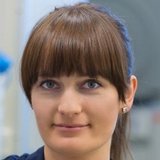
Heidi Neubauer, Dr. PhD
Junior Supervisor N094University of Veterinary Medicine Vienna
Institute of Animal Breeding and Genetics
Unit for Functional Cancer Genomics
Veterinärplatz 1
1210 Vienna, Austria
Research Interests
JAK-STAT signaling, hematopoietic cancers, malignant transformation, T cell leukemia/lymphoma, myeloproliferative neoplasms, chromatin remodeling, oncogenic signaling, cancer genomics, targeted therapies, translational research.
Research Focus
Cancer-driving mutations are frequently found in members of the JAK-STAT signaling pathway in patients with leukemias/lymphomas. Our research team is interested in exploring the molecular functions of JAK kinases and STAT transcription factors to gain insights into mechanisms controlling cellular proliferation/survival, gene transcription and epigenetic regulation, in the context of cancer initiation and progression.
We have a particular focus on rare and incurable cancers such as mature T cell leukemias/lymphomas (MaTCLs) and myeloproliferative neoplasms (MPNs). We develop new cellular and in vivo models, utilize next generation sequencing methods and work with patient samples to understand the mechanisms of hyperactive JAK-STAT signaling in these diseases and to explore new therapeutic targeting options or identify novel disease biomarkers.
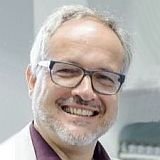
Rudolf Oehler, Ao.Univ.-Prof. Mag. Dr.
Senior Supervisor N094 & N790Medical University of Vienna
Department of General Surgery
Division of Viszeral Surgery
Währinger Gürtel 18-20
1090 Vienna, Austria
Research Interests
Colorectal cancer, breast cancer, tumor microenvironment, tumor immunology, myeloid cells, efferocytosis of apoptotic cells.
Research Focus
Our basic research interest is the immune response to cell death with special focus on cancer. We investigate which types of cell death (apoptosis, necroptosis, necrosis etc.) are induced by anti-cancer therapies, which molecular structures on dying cells are recognized by immune cells (DAMPs, mitochondria etc.), which receptors are involved, and what is the response of the different parts of the immune system (e.g. monocytes/macrophages, neutrophils, and the complement system).
Many studies (including from our group) strongly suggest that the clearance of dying cells initiates anti-inflammatory, pro-resolving mechanisms. We hope to find ways to overcome this inhibition of an anti-cancer immune response.

Ingrid Pabinger-Fasching, Ao.Univ.-Prof.i.R. Dr.med.univ.
Senior Supervisor N094 & N790Medical University of Vienna
Department of Medicine I
Clinical Department of Haematology and Haemostaseology
Währinger Gürtel 18-20
1090 Vienna, Austria
Research Interests
- Hereditary and acquired thrombosis risk factors: molecular and biochemical basis, aspects of diagnosis, clinical features and therapy
- Aspects of haemophilia treatment and acquired hemorrhagic diathesis
- Fundamentals and clinical relevance of coagulation abnormalities in patients with oncologic and haemato-oncologic diseases.
- Clinical and immunologic characteristics of patients with immune-thrombocytopenia
- Specific haemostaseologic problems in critically-ill patients
Research Focus
Research focuses on thrombosis and haemostasis, with particular interest in improving the understanding of risk, clinical course and mechanisms of venous thrombosis and bleeding disorders such as haemophilia. Thrombosis is a major health concern in the general population. One in 4 people worldwide die from conditions caused by thrombosis, and venous thromboembolism is the third most common cardiovascular disease. Inherited and acquired bleeding disorders represent the other side of the spectrum of haemostaseology. Less frequent in the general population, their diagnosis and management in clinical practice may be challenging.
Advances in the field of (inherited) bleeding disorders require additional clinical and translational research to better characterize pathophysiology, develop rational therapeutic targets, and improve patient care.

Verena Paulitschke, Assoc. Prof. Priv.-Doz. Dr. PhD
Junior Supervisor N094 & N790Medical University of Vienna
Department of Dermatology
Unit of General Dermatology and Dermatooncology
Währinger Gürtel 18-20
1090 Vienna, Austria
Research Interests
Melanoma, targeted and immune therapy, drug response and resistance, pathomechanisms of metastasis, function of exosomes in cancer, epithelial mesenchymal transition, biomarker identification, tumor microenvironment, photopheresis, proteome analysis.
Research Focus
Targeted and immune therapy offer novel and successful treatment options in advanced melanoma. However, therapy resistance is common and we focus on the identification of resistance mechanisms like epithelial mesenchymal transition, the function of the tumor microenvironment, the role of exosomes and the identification of predictive marker which might enable a patient stratification.
The main method used is proteomics in cooperation with the Institute of Analytical Chemistry (University of Vienna) followed by bioinformatics analysis and verification of the data by genomics, different molecular biological, functional methods and clinical validation.
We work with primary melanoma cells, acquired resistance cell models, cell cultures treated with drugs or stimulated with e.g. cytokines and serum and tissue samples.

Peter Petzelbauer, Univ.-Prof. Dr.med.univ.
Senior Supervisor N094Medical University of Vienna
Department of Dermatology
Skin & Endothelium Research Division (SERD)
Währinger Gürtel 18-20
1090 Vienna, Austria
Research Interests
Melanoma, Angiogenesis.
Research Focus
SERD is a basic biomedical research laboratory. With our work at the cutting edge of dermatology we strive to contribute to a better understanding of skin-specific endothelial responses in inflammation and cancer.
We analyze vascular barrier function as well as tumor stroma interactions. This understanding will lead directly to applied research projects with our partners and will ultimately have an impact on new therapies for endothelial responses to inflammation and tumor growth.

Dietmar Pils, Priv.-Doz. Mag. Dr. MA MSc
Senior Supervisor N094 & N790Medical University of Vienna
Department of General Surgery
Währinger Gürtel 18-20,08.Hi.05
1090 Vienna, Austria
Research Interests
Solid carcinomas (pancreatic, colorectal, ovarian); Biomarker; Multiomics (large and small RNA expression, circular RNAs, proteins, metabolomics, clinical and outcome data) and data integration; microRNAs; Epigenetics; Lipoproteins; Tumor models.
Research Focus
The biology and development of malignant diseases is a complex and heterogeneous cascade of changes of the tumor (cells) and the hosting individual (in the microenvironment and systemically).
Using single analyte methods (immunohistochemistry, immunofluorescence staining, flow cytometry, ELISA, etc.) and high-throughput omics technologies of clinical samples and with in vitro or ex vivo models, validated with publicly available data-sets, will guide us to understand tumorigenesis and to develop new therapeutic strategies.
At the moment we are interested in a noncanonical specific type of miRNA-guided gene expression regulation, the impact of lipoproteins on tumor and immune cells and the development of malignant ascites/pleural effusions as tumor model, especially for immune therapies.
I am also interested in the development of integrative bioinformatic methods to extract clinically and biologically relevant information from (multi)omics together with clinicopathologic data.

Jürgen Pollheimer, Assoc. Prof. Mag. Dr.
Junior Supervisor N094 & N790Medical University of Vienna
Department of Obstetrics and Gynecology
Maternal-Fetal Immunology Group (MFIG)
Währinger Gürtel 18-20, 5Q 09.17
1090 Vienna, Austria
Research Interests
Human placenta, trophoblast, trophoblast differentiation, trophoblast invasion, endometrial immune cells, myeloid cells, macrophages, neutrophils, T cell immunity, maternal immune responses during pregnancy, pregnancy pathologies, gestational trophoblast diseases, placenta organoids, primary trophoblast cultures.
Research Focus
Our research interests lie in the principles of early placental development and function. More recently, my group also became interested in immunological aspects during early pregnancy.
We currently have five areas of research:
- Cytomegalovirus-driven effects on resident T cell immunity in the human endometrium;
- characterization of tissue‐resident macrophage signatures in the maternal decidua and the regulatory effect of placenta-derived trophoblasts on myeloid cells;
- characterization of placenta-specific, secreted factors with the potential to serve as prognostic marker signatures during early pregnancy;
- vascular alterations, immune cell distribution and function in decidual and endometrial tissues of women suffering from idiopathic, recurrent abortions;
- the role of placenta-derived diamine oxidase during pregnancy.
To conduct our research we exclusively focus on investigating primary tissues and cell isolates from elective pregnancy terminations by using a broad range of techniques including transcriptome-based analyses, SLAMseq, spatial transcriptomics, metabolomics, ImmunoSEQ, CyTOF, flow cytometry, primary trophoblast culture systems, T cell activation assays, macrophage cultures and placental organoid/immune cell co-cultures.

Gerald Prager, Assoc. Prof. Priv.-Doz. Dr.med.univ.
Senior Supervisor N094 & N790Medical University of Vienna
Department of Internal Medicine I
Comprehensive Cancer Center Vienna
Währinger Gürtel 18-20
1090 Vienna, Austria
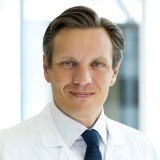
Matthias Preusser, Univ.-Prof. Dr.med.univ.
Senior Supervisor N094 & N790Medical University of Vienna
Department of Medicine I
Division of Oncology
Währinger Gürtel 18-20
1090 Vienna, Austria
Research Interests
Medical Oncology, immuno-oncology, precision medicine, prognostic and predictive biomarkers, brain tumors.
Research Focus
Immunotherapy, particularly with immune checkpoint inhibitors, has become a main treatment modality for cancer.
While long-lasting tumor remissions can be achieved, not all cancer patients respond to immunotherapy. Therefore, new biomarkers for accurate prediction of tumor immunogenicity are needed.
We focus on development of a tumor agnostic biomarker based on DNA methylation profiling from tumor tissue and blood samples, as well as mechanistic investigations explaining primary resistance to immune checkpoint inhibition.
Immunotherapy, particularly with immune checkpoint inhibitors, has become a main treatment modality for cancer. While long-lasting tumor remissions can be achieved, not all cancer patients respond to immunotherapy. Therefore, new biomarkers for accurate prediction of tumor immunogenicity are needed. We focus on development of a tumor agnostic biomarker based on DNA methylation profiling from tumor tissue and blood samples, as well as mechanistic investigations explaining primary resistance to immune checkpoint inhibition.

Martin Schepelmann, Priv.-Doz. Mag. Dr.
Junior Supervisor N094Medical University of Vienna
Center for Pathophysiology, Infectiology and Immunology
Institute for Pathophysiology and Allergy Research
Währinger Gürtel 18-20, Leitstelle 3Q
1090 Vienna, Austria
Research Interests
Physiology, pathophysiology, and pharmacology of the calcium-sensing receptor, colorectal cancer, inflammation, ageing, mouse models, calcium homeostasis, calcium signaling.
Research Focus
- The role the Calcium-sensing Receptor (CaSR) in (patho-)physiology
We are currently investigating the role of the CaSR in colorectal inflammation and cancer. Our research suggests that the CaSR has pro-inflammatory effects in the colon, and may be targeted for treating colonic inflammation and inflammation-associated colorectal cancer. - Ageing and colorectal cancer models
We are currently investigating the role of age in anti-cancer treatments and prevention strategies by validating and improving current standard in vivo models for colorectal cancer. - Building bridges between Biology and Medicinal Chemistry
As a pharmacist and physiologist rolled in one, I am very interested in combining the efforts of drug design and biological target evaluation by furthering collaboration and integrating the efforts of both disciplines. We have collaborations with drug discovery laboratories at Swansea and Cardiff (UK), and Warsaw (PL) Universities. We are combining our efforts to investigate tumour and calcium-sensing receptor pathophysiology.
To achieve these goals, we use state of the methods of molecular biology, cell biology, and pharmacology on in vitro, ex vivo and in vivo models of inflammation and colorectal cancer.

Martin Schreiber, Ao.Univ.-Prof. Mag. Dr.
Senior Supervisor N094 & N790Medical University of Vienna
Department of Obstetrics & Gynecology
Währinger Gürtel 18-20
1090 Vienna, Austria
Research Interests
Breast cancer, tumor suppressor gene p53 and its master regulator MDM2, estrogen receptor signaling, epithelial to mesenchymal transition, metastasis, genomic variants, biomarkers.
Research Focus
The centerpiece of our research is a panel of ~150 clinically and histopathologically well characterized human breast tumors. Over the years we have accumulated detailed gene expression and mutational profiles, clinical, histopathological, molecular and survival data of these patients and tumors.
Moreover, we have generated tissue arrays and genomic DNA and cDNA panels for IHC, FISH, qRT-PCR, polymorphism, sequence and epigenetic analyses.This is complemented by gain-of-function and loss-of-function approaches in our panel of 21 well characterized human breast cancer cell lines.
Any new project is designed to build up on these existing data and combine them with new ones. With these tools, we analyze key clinically relevant genes and pathways, their breast cancer specific alterations and perturbations, and their impact on cancer biology, metastasis, and cancer specific survival.

Medhat Shehata, Assoc. Prof. Priv.-Doz. Dr.
Senior Supervisor N094 & N790Medical University of Vienna
Department of Medicine I
Hematology/Hemostaseology Division
Währinger Gürtel 18-20
1090 Vienna, Austria
Research Interests
Tumor Microenvironment, lymphoid malignancies, chronic B cell leukemia, Leukemia stem cells, Bone marrow mesenchymal stem cells, Micrometastasis, Immune Checkpoint (PD-1/PD-L1), PI3K/Akt/PTEN, NOTCH, TGF-ß signaling and microenvironment models.
Research Focus
Tumor microenvironment plays a major role in leukemogenesis, cancer initiation, tumor progression and drug resistance. Tumor microenvironment is a complex system which includes cellular compartment (stromal cells, immune cells, T cells, B cells, monocytes and resident macrophages), soluble mediators (cytokines, growth factors, Chemokines and extracellular vesicles), matrix compartment (collagens, fibronectin, hyaluronan) and adhesion molecules (integrins).
The malignant cells change the natural tumor suppressor function of the microenvironment into a tumor supporting milieu. These changes provide the neoplastic cells with survival advantages through the modulation of central cell survival pathways such as PI3K/Akt, NOTCH, TGF-ß and immune checkpoint signaling.
We focus on exploring these cascades as a great opportunity for targeting tumor cells and discovery of novel treatment approaches for personalized therapy. We apply realistic ex vivo co-culture models based on primary stromal cells to explore and target the crosstalk between the neoplastic cells and their microenvironment. These models are ideal for getting a deeper insight into the mechanisms of tumor initiation, progression and drug resistance. They are also valuable for performing drug screening and drug combinations to generate proof of concepts for exploring novel therapeutic strategies and clinical validation.
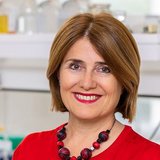
Maria Sibilia, Univ.-Prof. Mag. Dr.
Senior Supervisor N094 & N790Medical University of Vienna
Center for Cancer Research
Borschkegasse 8a
1090 Vienna, Austria
Research Interests
Receptor Tyrosine Kinases (EGFR, AXL, VEGFR), Solid Tumors, Genetically Engineered Mouse Models, Tumor Microenvironment, Microbiome Interplay, Tumor Organoids, Cancer & Immune Metabolism, Therapy Resistance.
Research Focus
Research in the Sibilia lab is focused on the molecular understanding on the interaction of cancer cells and immune cells favoring tumor progression, metastasis and therapy resistance, with a special focus on innate immune cells and how they affect inflammatory skin diseases and gastrointestinal tumors.
Tumor cells as well as the tumor microenvironment, which consists of infiltrating stromal and immune cells, are key contributors to cancer malignancy.
We want to explore possible molecular mechanisms by which the cellular environment affects chronic inflammation and tumor growth.
Moreover, the goal of our research is the comprehensive analysis of the multiple factors that affect response to therapy leading to intrinsic and acquired resistance, including oncogenic mutations in tumor cells affecting tumor sensitivity to immune effectors, alterations in the tumor or immune cell metabolism, and changes in the microbiome.
To attain a holistic view of these complex interactions we use genetically engineered mouse models (GEMMs) and tumor organoid cultures in combination with multi-omics approaches.
The ultimate goal is to provide a broad understanding of mechanisms that are targetable in malignant and inflammatory diseases and to exploit these novel concepts to develop rational and more effective mono- and combination therapies that ultimately improve the efficacy of treatments for human diseases.

Dea Slade, Assoc. Prof. Dr.
Senior Supervisor N094Medical University of Vienna
Department of Radiation Oncology
Währinger Gürtel 18-20
1090 Vienna, Austria
Research Interests
Cancer, DNA damage response, gene expression, PARP inhibitors, cGAS/STING signalling, anti-tumour immunogenicity, neuronal differentiation, neuronal disorders.
Research Focus
Cancer is one of the most devastating diseases of our time. Understanding cancer etiology and its microenvironment is a prerequisite for devising new treatment strategies.
Our research focuses on two hallmarks of cancer: genome instability and avoiding immune destruction.
At Max Perutz Labs we apply biochemistry, cell biology and functional genomics approaches to analyze at the mechanistic level how DNA damage response factors and transcription regulators ensure the maintenance of genomic and transcriptomic stability and how their mutations or deregulation contribute to carcinogenesis and neuronal disorders.
At MedAustron – a unique Austrian center for Ion Therapy and Research, we apply X-ray, proton and carbon ion radiation in different cancer types (pancreatic, TNBC and glioblastoma) and monitor the activation of anti-tumour immunity through the cGAS/STING pathway in 2D/3D cell culture and in mice, using in vivo imaging tools.
We are particularly interested in applying drugs that can induce synthetic lethality based on the patient background and boost anti-tumour immunity, such as PARP inhibitors.
By combining molecular and radiation biology we aim to
- identify new biomarkers for cancer
- identify drugs that can sensitize cancer cells to radiation therapy by activating the immune system, and
- translate cellular findings to mouse models.

Philipp Staber, Assoc. Prof. Priv.-Doz. Dr.med.univ.
Junior Supervisor N094 & N790Medical University of Vienna
Department of Medicine I
Division of Hematology & Hemostaseology
Währinger Gürtel 18-20
1090 Vienna, Austria
Research Interests
T-cell malignancies, lymphoma, hematopoiesis, precision medicine in hematology.
Research Focus
Finding functional switches in hematological malignancies: Our lab undertakes basic, translation and clinical research to advance and develop novel diagnostics and treatment modalities for patients with hematological malignancies.
More specifically, we study leukemias and lymphomas with particular high medical need for better therapies such as T-PLL (T-cell-prolymphocytic leukemia), and PTCL (peripheral T-cell lymphoma).
Moreover, the group has been instrumental in setting up a viable biobank (Vivi-bank) at the Medical University of Vienna, which currently contains a unique set of over 1000 fully annotated viable lymphoma samples for research use.
The laboratory is composed of various research profiles, including physician scientists, which drives our multi-disciplinary approach.
The basic research of the group focuses on key transcription factors of the blood system and their role in cellular differentiation, regulation of gene expression, and cancer formation. We particularly aim to understand how oncoproteins hijack physiologic programs to impact transcription factors so that they evoke hematologic cancers. Consequently, the central theme of our research is to push precision cancer medicine from a genetic centered view to a functional level where we test the feasibility and efficacy of integrating ex vivo drug screening in clinical decision making.
We are especially interested in the rational design of drug combinations to break therapy resistance and generating concepts on future trial design in the age of personalized precision medicine.

Patrick Starlinger, Assoc. Prof. Priv.-Doz. Dr.med.univ. PhD
Junior Supervisor N094 & N790Medical University of Vienna
Department of General Surgery
Division of Transplantation
Anna Spiegel Center for Translational Research
Lazarettgasse 14
1090 Vienna, Austria
Research Interests
Translational Research, Liver Regeneration, Liver Surgery, Liver Cancer, Preoperative Risk Assessment, Outcomes Research.
Research Focus
Molecular Aspects of Liver Cancer & Regeneration
Liver resection is considered the only curative treatment option for several neoplastic entities of the liver.
Despite substantial improvements in surgical techniques and peri-operative care, post-operative failure of liver regeneration and concomitant liver dysfunction remain an important concern after partial hepatectomy.
In hepatobiliary surgery, this is of major clinical relevance as patient outcome correlates with the potential of the remnant liver to regenerate.
In particular, postoperative liver failure represents a frequently fatal postoperative complication with very limited therapeutic options.
In this context, it is of crucial importance to understand the complex process of liver regeneration. Indeed, the potential of the liver to regenerate after resection is unique and orchestrated by a combination of highly redundant effector molecules, as blockage of a single molecule only delays but does not stop the process.
It is known that a variety of bioactive molecules are involved in liver regeneration.
In the past decades, essential insights in mechanisms of hepatic regeneration have been unraveled and several mediators of these mechanisms have been explored in detail.
Furthermore, thrombocytes have been found to play a crucial role, not only during the initiation period, but throughout all phases of liver regeneration.
In this context, hepatobiliary surgery struggles with two major obstacles:
- to identify patients at risk of postoperative liver dysfunction and concomitant major, potentially lethal, complications prior to surgery;
- to identify patients with highly aggressive disease, that will not benefit from liver resection due to rapid recurrence of the tumor.
In both cases surgery should be omitted as there is no benefit for these patients.
However, to date no reliable marker is available to predict patient outcome and postoperative tumor relapse.
Main research objectives of the group:
- Molecular mechanisms of liver regeneration and potential treatment targets:
- Identification of central regulators and processes involved in the initiation of liver regeneration.
- Characterization of regulatory mechanisms and thereby identification of novel therapeutic targets to support the regenerative capacity after liver resection as well as to improve our understanding of the pathophysiological processes involved in liver regeneration.
- Predictive and prognostic markers for liver regeneration and primary and secondary liver cancer:
- Identification of clinical and experimental markers of liver regeneration which reflect the prognosis of regenerative capability and therefore the postoperative outcome after liver surgery, to ultimately tailor surgical strategy to each individual patient and thereby avoid potentially fatal complications.
- Quantification of tumor aggressiveness using clinical and experimental markers to predict early disease recurrence, to spare unnecessary surgery in patients that will not benefit from tumor resection.
- Cancer development:
- Identification of the role of platelets and immune cells and their interaction during the development of liver cancer and progression.

Dagmar Stoiber-Sakaguchi, Univ.-Prof. Priv.-Doz. MMag.Dr. PhD
Senior Supervisor N094Karl Landsteiner University of Health Sciences
Department of Pharmacology, Physiology and Microbiology
Division Pharmacology
Dr.-Karl-Dorrek-Straße 30
3500 Krems, Austria
Research Interests
Signal transduction, JAK-STAT signaling, tumor-immune interaction, tumor surveillance, interferon signaling, tumor models, hematopoietic tumors, acute myeloid leukemia.
Research Focus
My laboratory is generating new mouse models to study hematopoietic but also solid neoplasms.
Thereby we focus on the molecular mechanisms underlying tumor development and progression. Emphasis is put on components of the Janus kinase (JAK) / signal transducer and activator of transcription (STAT) signaling pathway in tumor development and immune surveillance. Aberrant JAK/STAT signaling is involved in the pathogenesis of acute myeloid leukemia (AML), a highly heterogeneous hematopoietic malignancy.
Our current work is thus focusing on the characterization of the transcription factor STAT3 in hematopoietic tumors, in particular AML.

Hedwig Sutterlüty, Assoc. Prof. Priv.-Doz. Mag. Dr.
Senior Supervisor N094 & N790Medical University of Vienna
Center for Cancer Research
Borschkegasse 8a
1090 Vienna, Austria
Research Interests
Cell-cell communication, Signal transduction, microRNA, Sprouty proteins, Ras protein, transformation, MAPK pathway, compartmentalized signaling.
Research Focus
Understanding how signal transduction is controlled is an important issue in biology with huge implications for understanding cancer.
The strictly coordinated cellular response to external signal is critical for many malignant cellular features including unrestricted and/or anchorage independent growth, increased disposition to migrate, as well as decreased adherence.
Consequently, many of the alterations found in cancer perturb molecular signaling and thereby cause a strongly reduced dependence on external mitogenic stimulation.
Most of our current projects are designed in order to clarify the role of Sprouty proteins in cell signaling and cancer.
We investigate how Sprouty protein are regulated including the influence of microRNAs, promoters and posttranslational modifications.
Additionally, we want to elucidate their role as modulators up- and downstream of Ras in dependence on the cellular backgrounds.

Gergely Szakacs, Univ.-Prof. PhD
Senior Supervisor N094Medical University of Vienna
Center for Cancer Research
Borschkegasse 8a
1090 Vienna, Austria
Research Interests
Membrane transport biology, ABC transporters, multidrug resistance, evolution of therapy resistance, collateral sensitivity, drug tolerant persisters, mouse models of cancer, organoids.
Research Focus
Elucidating the molecular basis of therapy resistance in breast cancer is an unmet clinical need.
Based on preliminary results we hypothesize that therapy resistance is linked to a rare population of drug tolerant persister cells (DTPs) that survive treatment through the stabilization of transient drug-induced phenotypes, until mechanisms ensuring stable drug resistance emerge.
Profiling the tumor during different stages of therapy is necessary to identify vulnerabilities of this adaptive process.
Our preliminary work has characterized the response of orthotopically transplanted tumor-bearing mice to a series of clinically relevant chemotherapies.
While these therapies significantly reduce the tumor size, they are unable to eradicate tumor cells, which give rise to drug-sensitive relapse after the cessation of the treatment.
We are addressing the following research questions:
- What is the contribution of phenotypic adaptation vs Darwinian selection?
- Are cells showing a DTP signature present prior to treatment?
- Will different clinical protocols induce DTPs with similar signatures?
- What is the relative contribution of genetic vs non-genetic (epigenetic, transcriptional plasticity) factors, and of the interactions with the microenvironment?
- What is the relation between the pathways supporting DTPs and the mechanisms underlying resistance to therapy?
- How can this knowledge be translated to improved patient care?
To address these challenging questions, we profile individual “tumor histories” at single-cell resolution using in vitro cell lines and organoids derived from genetically engineered mouse models of cancer (GEMMC).
Effective targeting of DTPs will result in a paradigm shift, changing the focus from countering drug resistance mechanisms to preventing or delaying therapy resistance, leading to improved treatments of patients.

Yen Yen Tan, Priv.-Doz. BSc MSc PhD
Junior Supervisor N094 & N790Medical University of Vienna
Department of Obstetrics and Gynecology
Währinger Gürtel 18-20
1090 Vienna, Austria
Research Interests
BRCA1/2 genes, hereditary breast and ovarian cancer, early detection of cancer, cancer epidemiology, risk prediction models, quality of life, supportive care needs, survival.
Research Focus
My research interests cover all aspects of the epidemiology of hereditary breast and ovarian cancer, ranging from etiology and prevention to diagnosis, quality of life, supportive care needs and survival.
A particular focus is on developing risk prediction models and improving health services and outcomes for the high-risk cancer population.
Much of this work is conducted within the Austrian Hereditary Cancer National Study (ATHENA), International BRCA1/2 Carrier Cohort Study (IBCCS), Consortium of Investigators of Modifiers of BRCA1/2 (CIMBA), and Evidence-based Network for the Interpretation of Germline Mutant Alleles (ENIGMA).
Funding has recently been obtained for two new projects:
- PREDICTOME Study (WWTF, 2021-2024) that will develop a validated machine-learning model for predicting pathologic complete response in breast cancer patients towards safely omitting surgery based on early neoadjuvant chemotherapy response, and
- identification and molecular analyses of brain metastasis in breast cancer patients study (CCC, 2022-2024) that aims to identify new gene targets that facilitate metastasis and to assess if breast cancer patients with BRCA1 mutation have a higher risk of brain metastasis.

Sabine Taschner-Mandl, Mag. Dr. Phd
Senior Supervisor N094St. Anna Children’s Cancer Research Institute (CCRI)
Zimmermannplatz 10
1090 Vienna, Austria
Research Interests
- Molecular drivers of pediatric cancers (neuroblastoma, osteosarcoma)
- Tumor heterogeneity and microenvironment
- Development of new diagnostic and prognostic markers for precision oncology
- Single cell technologies, cell and tissue imaging and computational analysis
Research Focus
One of our main research interests is the biology of high-risk neuroblastoma, a cancer of the developing sympathetic nervous system. Patients that are diagnosed and stratified as high-risk suffer from relapses and metastases and their survival rate remains below 40% despite intensive multimodal treatment. To date there are only a few driver genes linked to the pathogenesis of high-risk neuroblastoma, most of which are not directly druggable and frequently insufficient response to therapy is observed. We employ genome-wide and targeted CRISPR/Cas9 screens, single cell genomics and epigenomics as well as multi-modal tissue imaging in order to identify molecular drivers of tumor heterogeneity, metastasis and therapy resistance.
We have established in vitro and in vivo preclinical patient-derived models for functional assays and drug testing for precision oncology that can be translated into existing and new clinical trials with the ultimate goal to improve treatment outcomes and survival of high-risk neuroblastoma patients.

Eleni M. Tomazou, Dr. PhD.
Junior Supervisor N094St. Anna Children’s Cancer Research Institute (CCRI)
Zimmermannplatz 10
1090 Vienna, Austria
Research Interests
Pediatric cancers, Epigenomics, Liquid biopsy, Single cell technologies, Tumor microenvironment, Bioinformatics.
Research Focus
The goal of our research group is to uncover the roles of epigenetic deregulation as an oncogenic mechanism, with a focus on fusion-driven pediatric sarcomas.
We study how fusion proteins rewire healthy cells for malignancy, with the perspective of exploiting this knowledge for improving pediatric sarcoma therapy.
We are applying state-of-the-art technologies that combine wet-lab and computational methods investigating:
- Non-genetic mechanisms of tumor formation orchestrated by oncogenic fusion proteins
- Contribution of the cellular state of the corresponding cell of origin to cancer development
- Epigenetic heterogeneity as source of cellular plasticity providing novel therapeutic paradigms
- Non-genetic based biomarkers for patient stratification and real time disease monitoring

Peter Valent, Univ.-Prof. Dr.med.univ.
Senior Supervisor N094 & N790Medical University of Vienna
Department of Medicine I
Division of Hematology & Hemostaseology and
Ludwig Boltzmann Institute for Hematology and Oncology
Währinger Gürtel 18-20
1090 Vienna, Austria
Research Interests
Hematologic neoplasms, leukemia, precision medicine and personalized medicine, stem cells, targeted drugs, mast cells, basophils, eosinophils.
Research Focus
Myeloid leukemias and other myeloid neoplasms are composed of two distinct fractions of cells, a bulk-population that has a limited capacity of long-term proliferation, and a smaller fraction that has unlimited self-renewal and thus long-term disease-propagating capacity, the so-called neoplastic leukemic stem cells (LSC).
During the past 10 years, LSC have been studied extensively in basic science and translational medicine. The related concept has critical implications for the development of "curative" drug therapies. Notably, anti-leukemic drugs or immunotherapies can only exert curative effects when eliminating most or all LSC.
A major aim in LSC-related projects of the Valent group is to establish improved, potentially curative, approaches for human leukemias by applying drugs and drug combinations or immunotherapies that can eliminate LSC in these malignancies, either directly or by targeting the LSC-supporting niche and/or immunologic mechanisms mediating LSC resistance.

Katrina Vanura, Assoc. Prof. Mag. Dr.
Senior Supervisor N094 & N790Medical University of Vienna
Department of Medicine I
Division of Hematology & Hemostaseology
Währinger Gürtel 18-20
1090 Vienna, Austria
Research Interests
Lymphoid malignancies, chronic inflammatory conditions and lymphoid malignancies, sex-specific differences in hematologic malignancies.
Research Focus
Our research encompasses various aspects of lymphoid malignancies and include environmental factors, sex specific differences, markers for prognosis and treatment response.
Hematologic malignancies are characterized by a male to female ratio of 1.5-3:1, depending on the neoplasm.
The reason for this increased risk of men to develop blood cancer is entirely in the dark. Also, female sex is associated with good prognosis and better response to treatment in many of the diseases.
Hard facts regarding sex-specific differences are, however, mostly lacking.
Using chronic lymphodytic leukemia (CLL) as model system, we want to gain insights into these differences to better understand the biology of CLL, which eventually may lead to different therapeutic approaches that take into account the biological differences between the sexes.
In this respect, we found UGT-glucuronosyltransferases to represent bad prognostic markers which also appear to be involved in the deactivation of chemotherapeutic and targeting drugs.
Considering their role in steroid hormone metabolism, we study activity and function of these enzymes in addition to hormones and hormone receptors to better understand the differences between female and male patients with CLL.
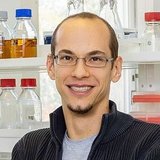
Thomas Vogl, Ass.-Prof. Dr.rer.nat. BSc MSc
Junior Supervisor N094Medical University of Vienna
Center for Cancer Research
Borschkegasse 8a
1090 Vienna, Austria
T: +43 (0)1 40160-57529
thomas.vogl@meduniwien.ac.at
Website Thomas Vogl
Research Interests
Microbiome, cancer, antibody repertoires, high throughput assays, machine learning
Research Focus
Some intestinal microbes benefit human health by boosting certain anti-cancer treatments.
However, at the same time different bacterial strains have been linked to the occurrence colorectal cancer. How the immune system differentiates between beneficial and harmful microbes, and how these aspects influence cancers, is only incompletely understood.
A better understanding of the complex interaction between the intestinal microbes and our immune system could improve the prevention of cancer and pave the way towards novel therapeutics.

Erwin Friedrich Wagner, Univ.-Prof. Dipl.-Ing. Dr.
Senior Supervisor N094Medical University of Vienna
Department of Dermatology
Department of Laboratory Medicine
Anna Spiegel Research Building
Lazarettgasse 14, AKH BT25.2, Level 6
1090 Vienna, Austria
T: +43 (0)1 40400-73506
erwin.wagner@meduniwien.ac.at
Website Erwin Wagner
Research Interests
Mouse models, Cancer, Inflammation, Skin, Cachexia, Metabolism, Fibrosis, AP-1.
Research Focus
Our studies aim to analyse gene function in healthy and pathological conditions, e.g. in tumour development, using the mouse as a model organism, but also employing patient-derived samples.
Our overall strategic goals are to achieve a better understanding of the events leading to disease and to discover molecular mechanisms that could provide a basis for novel therapies.
We investigate how a healthy organ functions within a complex organism focussing on the liver, skin and bone but we also study inflammation, fibrosis, metabolism, tumorigenesis and cancer cachexia.
Our research covers multiple aspects of cell biology, ranging from stem cells, tumour cell interactions with host cells/environment such as tumour-associated macrophages and fibroblasts.
Powerful state-of-the-art mouse genetic models, human cellular systems, high-throughput genomic/proteomic and biochemical tools as well as patient-derived materials are employed.
For example, genes encoding for the transcription factor complex AP-1 (Fos/Jun) were manipulated in mouse models to study diseases such as psoriasis, systemic fibrosis, arthritis, hepatocellular carcinoma and osteosarcoma.
The Genes and Disease Group is dually affiliated with the Department of Dermatology and the Department of Laboratory Medicine, and is funded by an ERC-AdG 2016 CSI-Fun-741888 and an ITN/EU PhD network grant (H2020-MSCA-ITN-2019-859860 - CANCERPREV).

Stephan N. Wagner, Univ.-Prof. Univ.-Doz. Dr.med.univ.
Senior Supervisor N094 & N790Medical University of Vienna
Department of Dermatology
Laboratory of Molecular Dermato-Oncology and Tumor Immunology
Währinger Gürtel 18-20
1090 Vienna, Austria
T: +43 (0)1 40400-77000
stephan.wagner@meduniwien.ac.at
Website Stephan Wagner
Research Interests
Melanoma, tumor microenvironment, B cells and subpopulations, tertiary lymphoid structures, therapy resistance.
Research Focus
The tumor microenvironment is critical to tumor growth, disease progression, and treatment response. Our research group focuses on the contribution of B cells to melanoma progression and response to therapy.
B cells are part of the microenvironment of human melanomas and can originate from both tumor lymph nodes and tertiary lymphoid structures at tumor sites, known as TLS.
B cells and TLS have been shown to enhance the T-cell response to tumor and predict response to therapy with antibodies that block the immune checkpoint in various cancers.
However, the underlying mechanisms are poorly understood. On the other hand, B cells and TLS are also capable of dampening immune responses, but the triggers for this functional dichotomy remain to be uncovered. Through hypothesis-driven multi-omics analyses of human tumor samples in conjunction with advanced ex vivo and in vitro models that functionally investigate the interaction of tumor cells and cells of the tumor microenvironment, we will decipher the relevant mechanisms and validate them in in vivo models of the disease together with collaborative partners.

Elisabeth Waldmann, Priv.-Doz. Dr. PhD
Senior Supervisor N094 & N790Medical University of Vienna
Department of Medicine III
Division of Gastroenterology and Hepatology
Währinger Gürtel 18-20, 7i
1090 Vienna, Austria
Research Interests
Colorectal cancer, cancer screening, molecular profiling, hereditary syndromes.
Research Focus
Screening colonoscopy aims to detect and resect colorectal cancer in very early, curative stages, or preferably its precursor lesions, adenomas or serrated polyps, to prevent from malignant transformation and hence reduce incidence and mortality of colorectal cancers. Poor quality colonoscopy and presumably distinct tumor features can lead to colorectal cancer diagnoses despite screening.
We focus on two particular research interests.
First, endoscopists related factors that can cause post-coloscopy colorectal cancer. We assess endoscopists’ performance on the basis of a database of screening colonoscopies performed within a national quality assurance program.
Second, we are interested in molecular profiling of colorectal cancers, particularly post-colonoscopy colorectal cancers. We aim to investigate the role of immune surveillance of colonic lesions, to identify features that impact long-term patient outcome.

Rotraud Wieser, Ao.Univ.-Prof. Mag. Dr.
Senior Supervisor N094 & N790Medical University of Vienna
Department of Medicine I
Division of Oncology
Währinger Gürtel 18-20
1090 Vienna, Austria
Research Interests
Acute myeloid leukemia, therapy resistance, relapse, leukemic stem cells, CALCRL, CGRP, MECOM, retinoic acid, head and neck squamous cell carcinoma.
Research Focus
Acute myeloid leukemia (AML) is an aggressive and often fatal hematological malignancy. Despite recent approval of targeted drugs, chemotherapy is still the mainstay of treatment.
Chemotherapy achieves remissions in the majority of patients, but many of them subsequently relapse with largely therapy resistant disease.
Relapse is thought to result from the outgrowth of therapy resistant leukemic stem cells (LSCs), and represents a key problem in the treatment of AML.
We reasoned that genes differentially expressed between diagnosis and relapse of AML are likely to contribute to leukemia cell survival under chemotherapy, thus facilitating relapse. Over 1.000 such genes were identified through genome wide gene expression profiling.
Functional characterization of several of these genes, including CALCRL, which encodes a G-protein coupled receptor for the peptide ligand CGRP, showed that they indeed played roles in aggressiveness, stem cell related properties, and therapy resistance of AML.
Other research of the group deals with the effects of all-trans retinoic acid, a therapeutic whose clinical activity is restricted to certain subgroups of AML, on molecularly and genetically distinct AML LSCs.
Most recently, the group has started research on genes involved in the pathogenesis of head and neck squamous cell carcinoma.
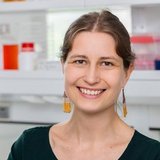
Juliane Winkler, Dr.rer.nat.
Junior Supervisor N094Medical University of Vienna
Center for Cancer Research
Borschkegasse 8a
1090 Vienna, Austria
T: +43 (0)1 40160-57534
juliane.winkler@meduniwien.ac.at
winklerlab.org
Research Interests
Systems oncology, metastasis, metastatic niche, tumor microenvironment, heterogeneity, cell interactions, breast cancer, single-cell omics
Research Focus
Metastasis is the major cause of cancer-related deaths. Individual tumor cells within one tumor show high genetic and phenotypic heterogeneity impacting the response to therapy, their interactions with non-malignant cells in their environment, and their capability to metastasize.
In the Winkler Lab, we are investigating the implications of tumor heterogeneity on metastasis. To this end, we are using technology-driven systems-oncology approaches that lead to meaningful insights into the complex biology of metastasis. We apply single-cell omics and spatial applications to understand the implications of tumor heterogeneity:
- on the formation and progression of metastasis
- the tumor-immune cell axis
- and the therapy resistance of metastasis.

Georg E. Winter, Dr., PhD
Junior Supervisor N094CeMM – Center for Molecular Medicine
Lazarettgasse 14, AKH BT25.3
1090 Vienna, Austria
T: +43 (0)1 40160-70031
gwinter@cemm.oeaw.ac.at
Website Georg Winter
Research Interests
Chemical Biology, Targeted Protein Degradation, Leukemia, Transcription Regularion, Functional Genomics, Chemical Proteomics, Drug-target identification, Drug Mechanism of action studies, Cancer Drug Resistance, Molecular Glue Degraders, PROTACs
Research Focus
Thematically, research in my lab is focused on the interface of cancer, chemical biology and gene control. We aim to innovate novel (pharmacologic) strategies that allow us to probe, understand and eventually target aberrant transcriptional circuits in cancer.
Our science is thus unapologetically translational, but we nevertheless aim to ask scientific questions that are fundamental in nature and allow us to develop a better understanding of gene control and the ubiquitin-proteasome system. Our research strategy is inspired and driven by high-throughput and unbiased technologies such as quantitative proteomics, (nascent) transcriptomics and functional genomics. Integrative use of these technologies enables us to understand the mechanism of action of proteins, protein complexes or small molecules on a holistic level.
In almost all cases, we are however not satisfied by merely charting the global picture, but rather use this multi-omics approaches to establish hypotheses that are followed up on a mechanistic level.
Currently, the main focus of the group is to push the limits of targeted protein degradation, and -in the wider sense- proximity-inducing drugs, as a novel paradigm in therapeutic discovery.

Robert Zeillinger, Ao.Univ.-Prof. Dr.
Senior Supervisor N094Medical University of Vienna
Department of Obstetrics and Gynecology
Molecular Oncology Group
Währinger Gürtel 18-20, 5Q
1090 Vienna, Austria
Research Interests
Gynecological malignancies, early cancer detection, biomarker identification and validation, circulating tumor cells, tumor suppressor protein aggregates
Research Focus
Currently the focus of the Molecular Oncology Group is the detection and molecular characterization of circulating tumor cells (CTCs) in gynecological malignancies, prostate cancer, and lung cancer.
We are using several CTC enrichment techniques, qPCR and immunofluorescence staining and semi-automated microscopic imaging. We identified mRNAs that are solely or predominantly expressed in tumor cells and not in white blood cells. Currently we are investigating, if these markers can be detected not only in CTCs, but also directly in blood samples or in microvesicles.
Another project is about the protein aggregation of tumor suppressor genes. We developed assays for the detection and quantification of p53 aggregates. These "p53 prions" and other tumor suppressor protein aggregates are investigated in frequently p53-mutated cancers, like ovarian cancer, breast cancer, small cell lung cancer, and head & neck cancer.